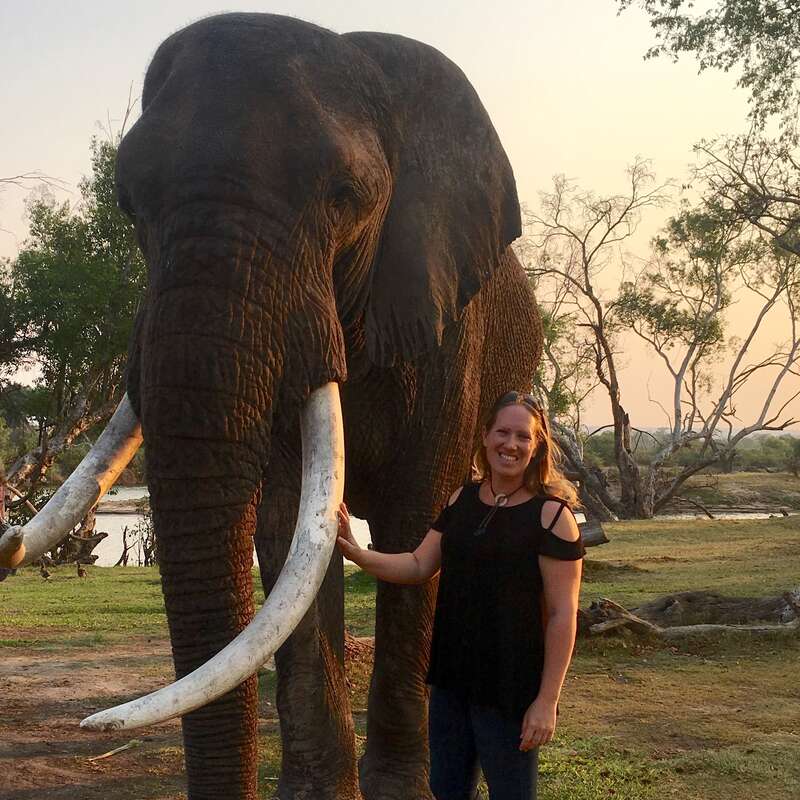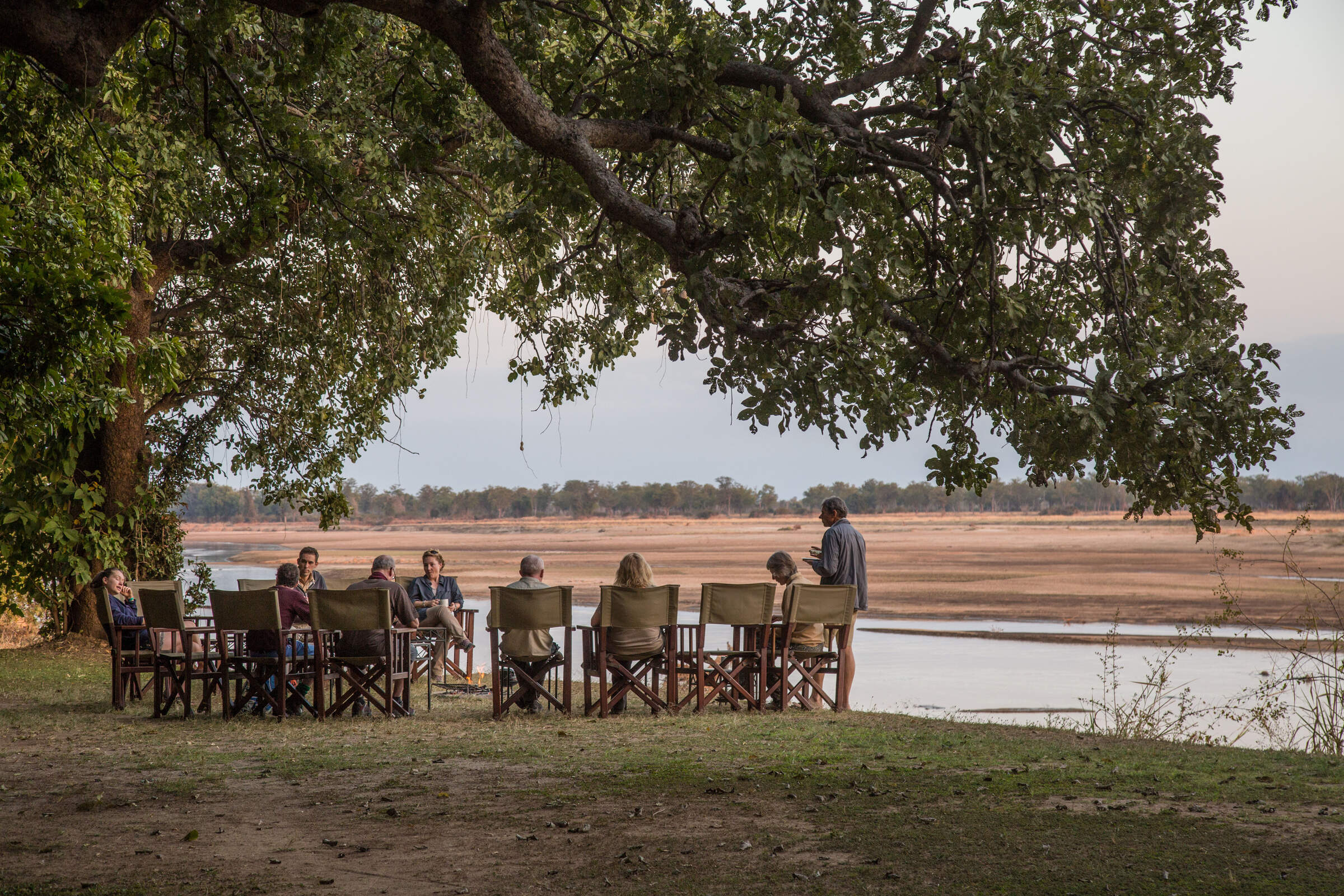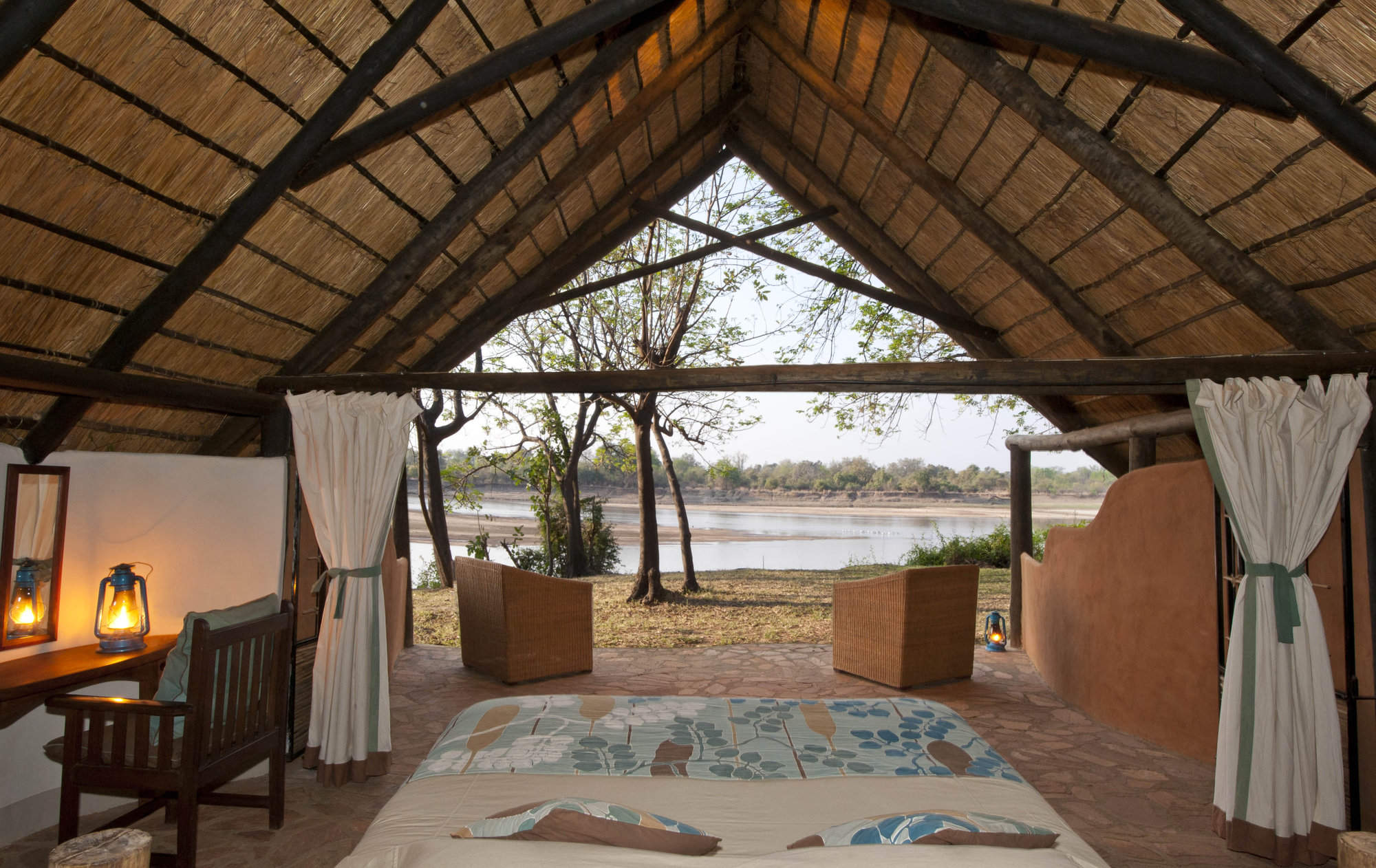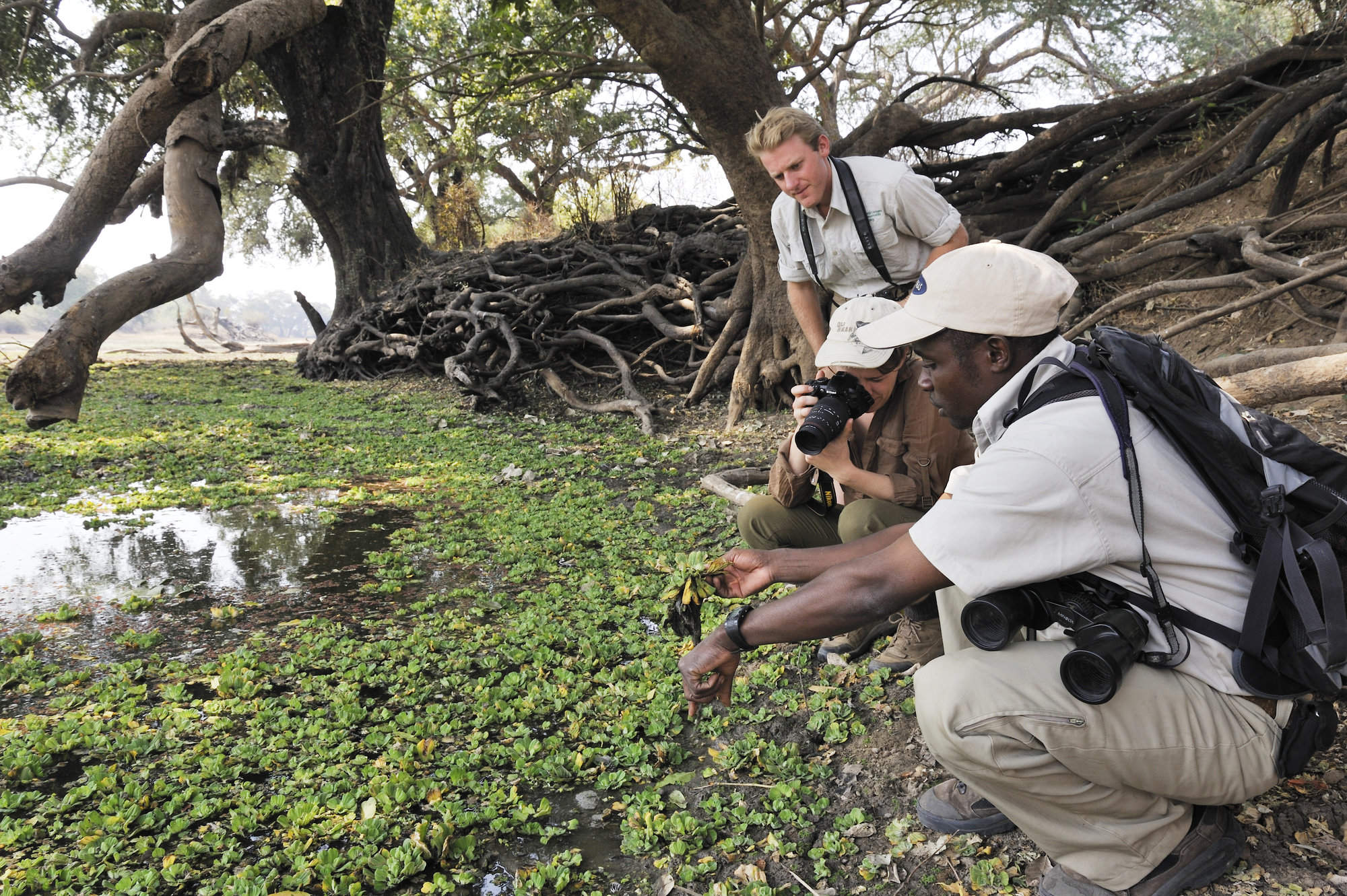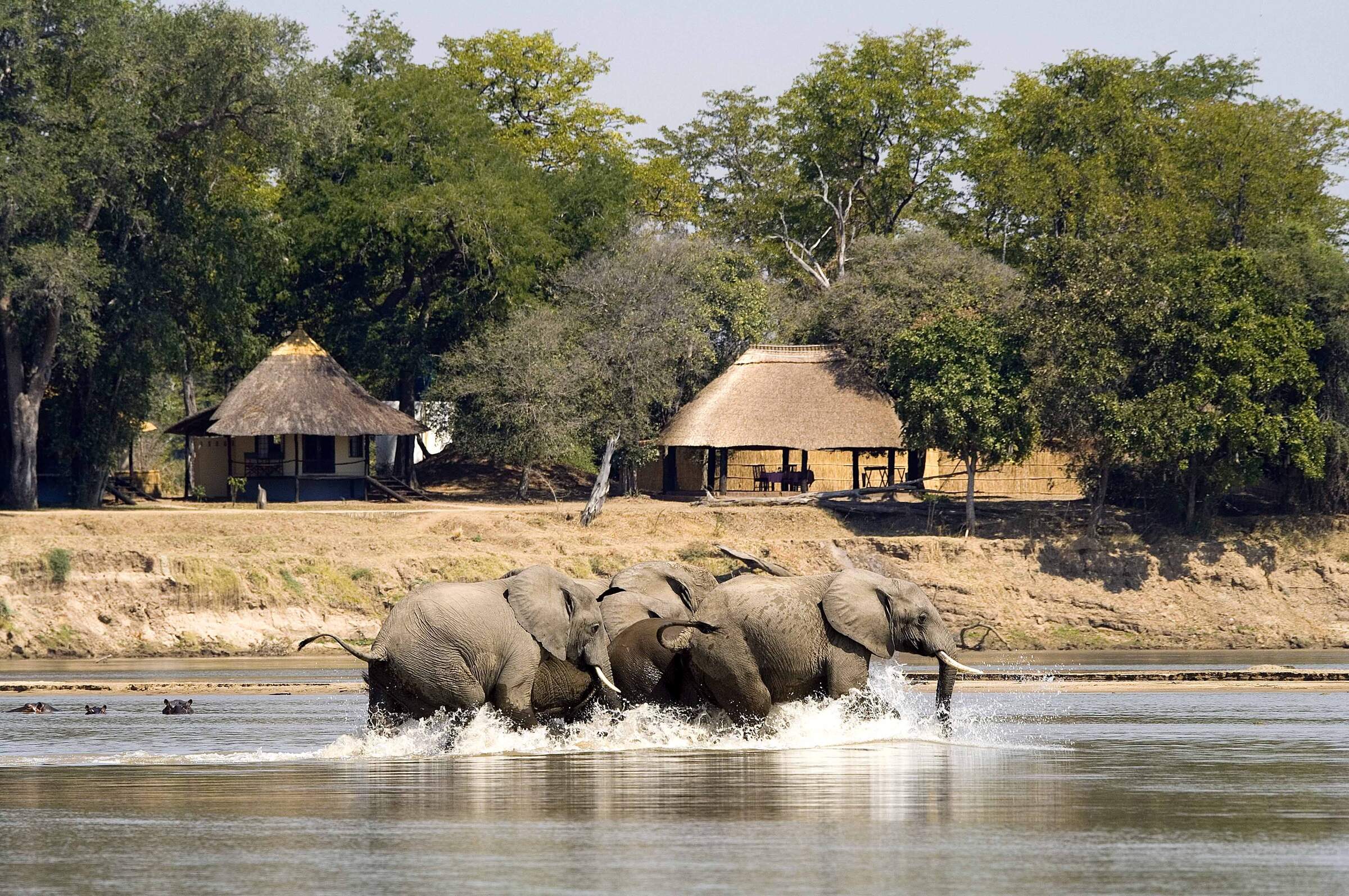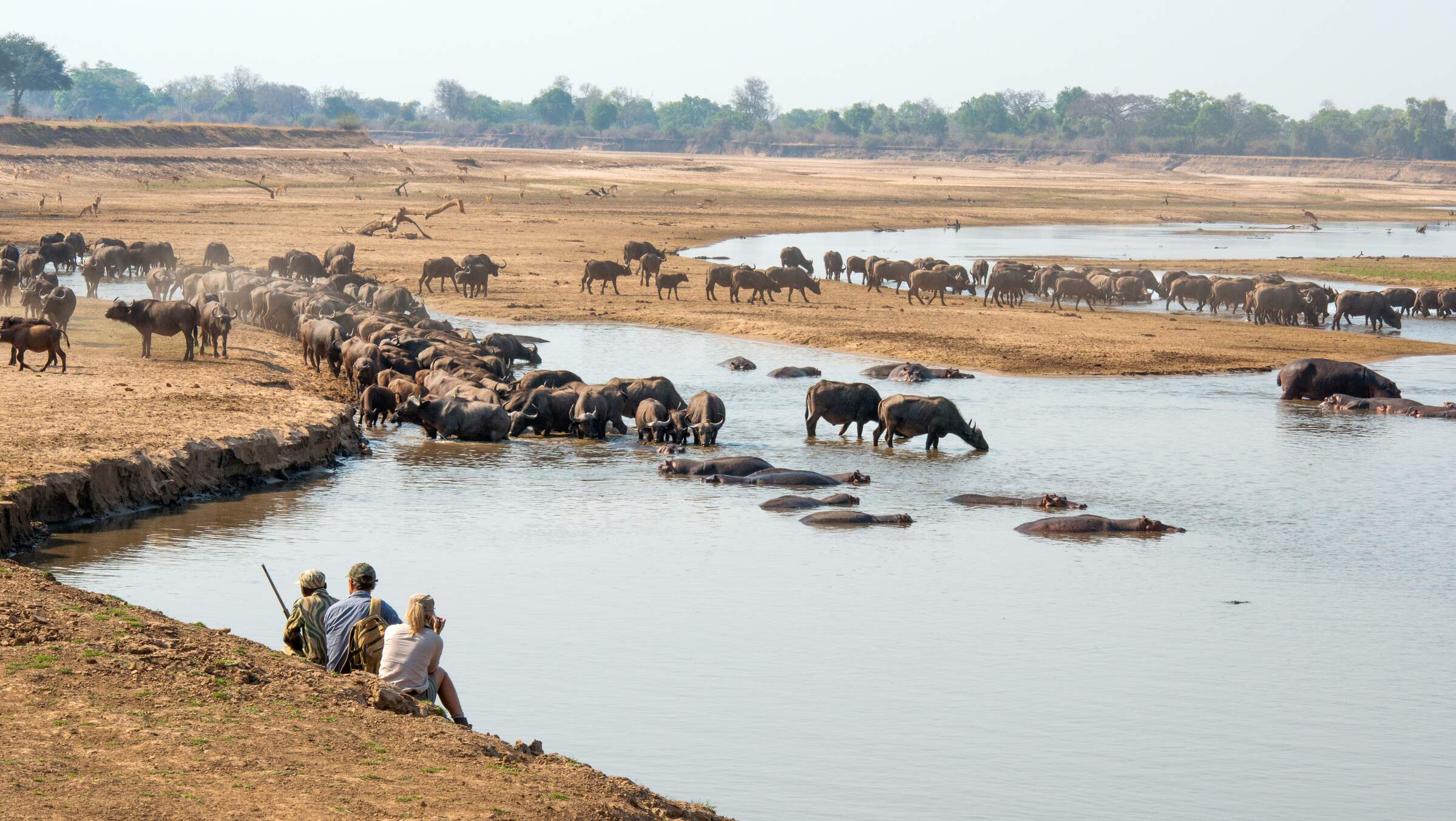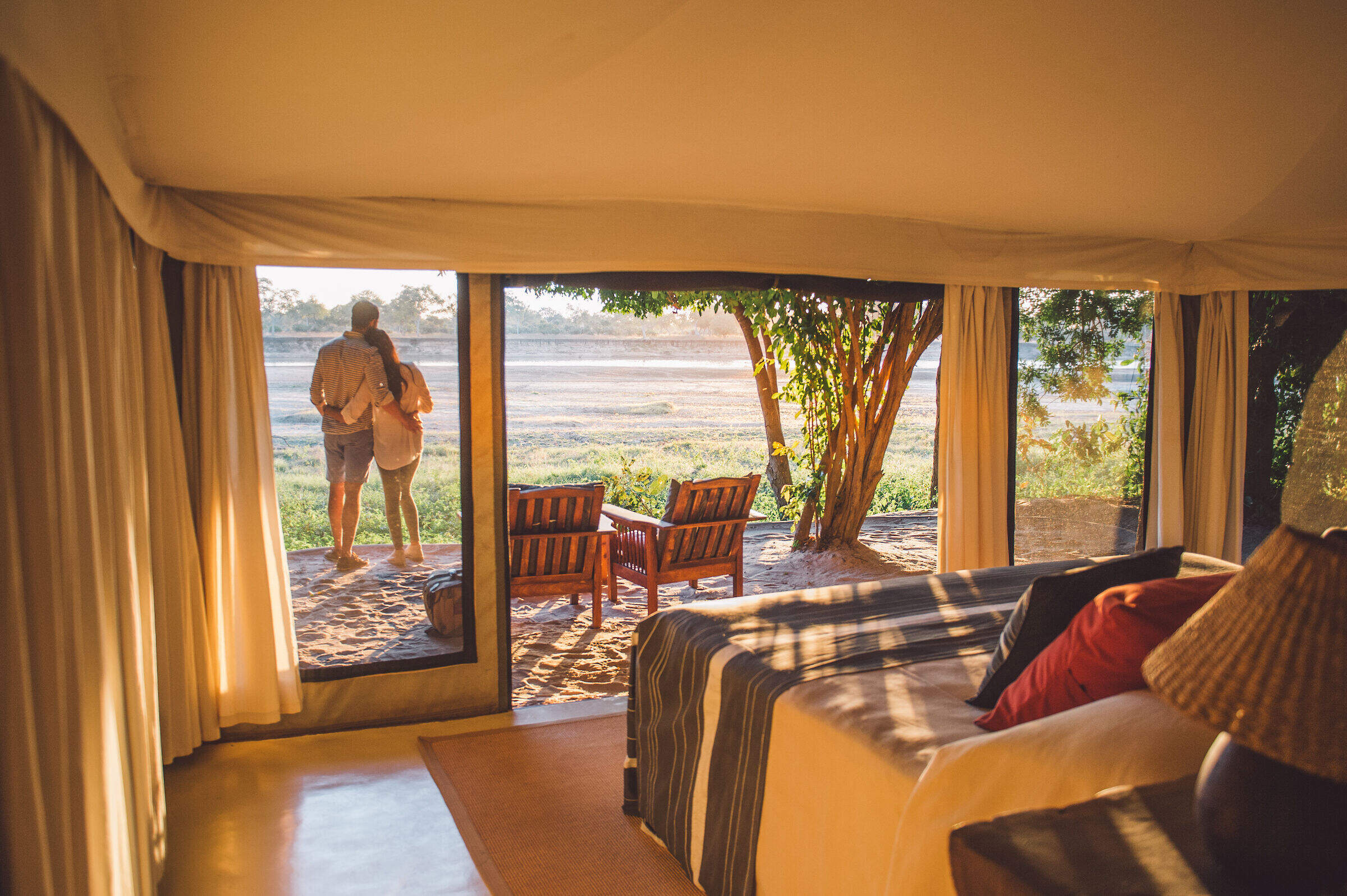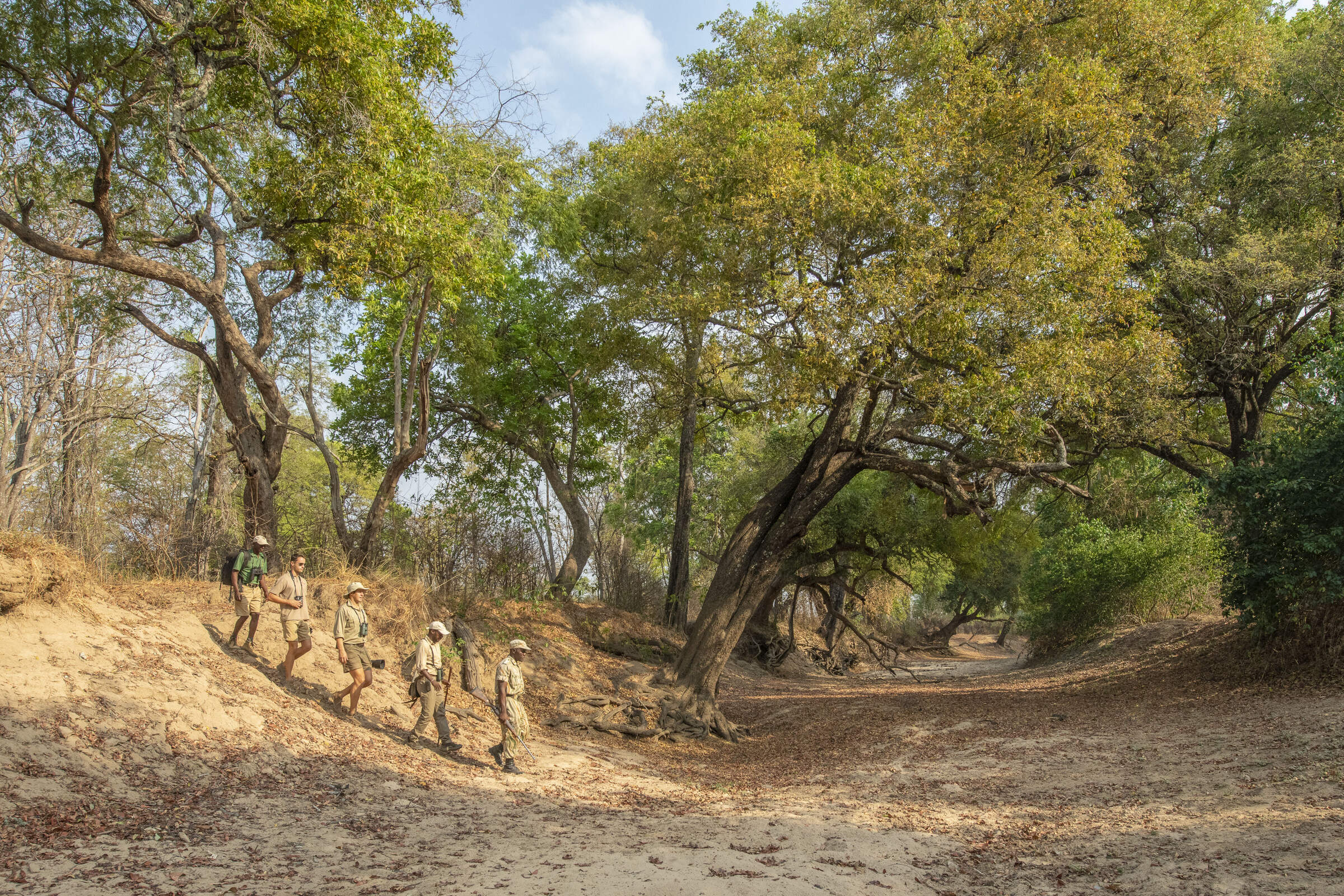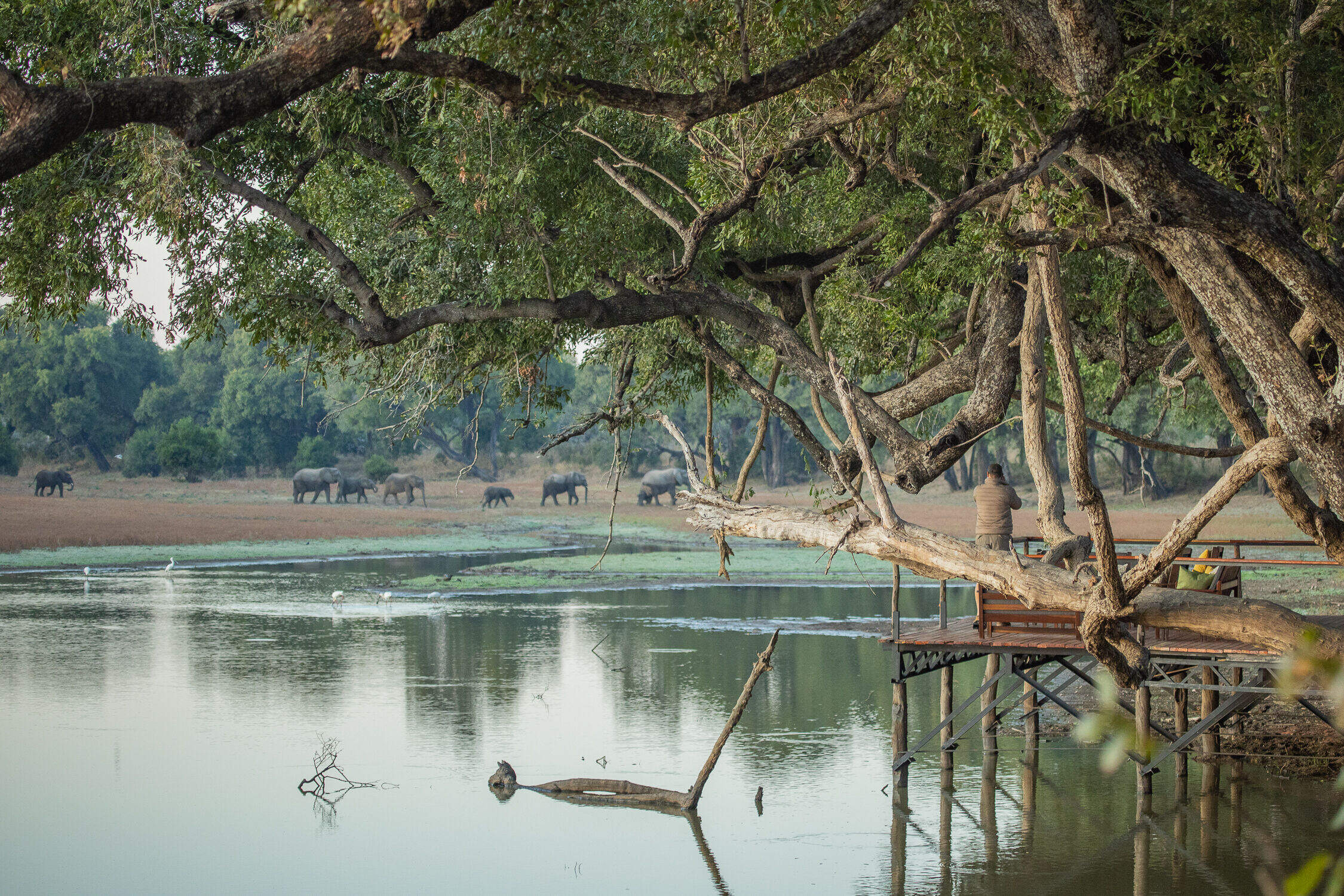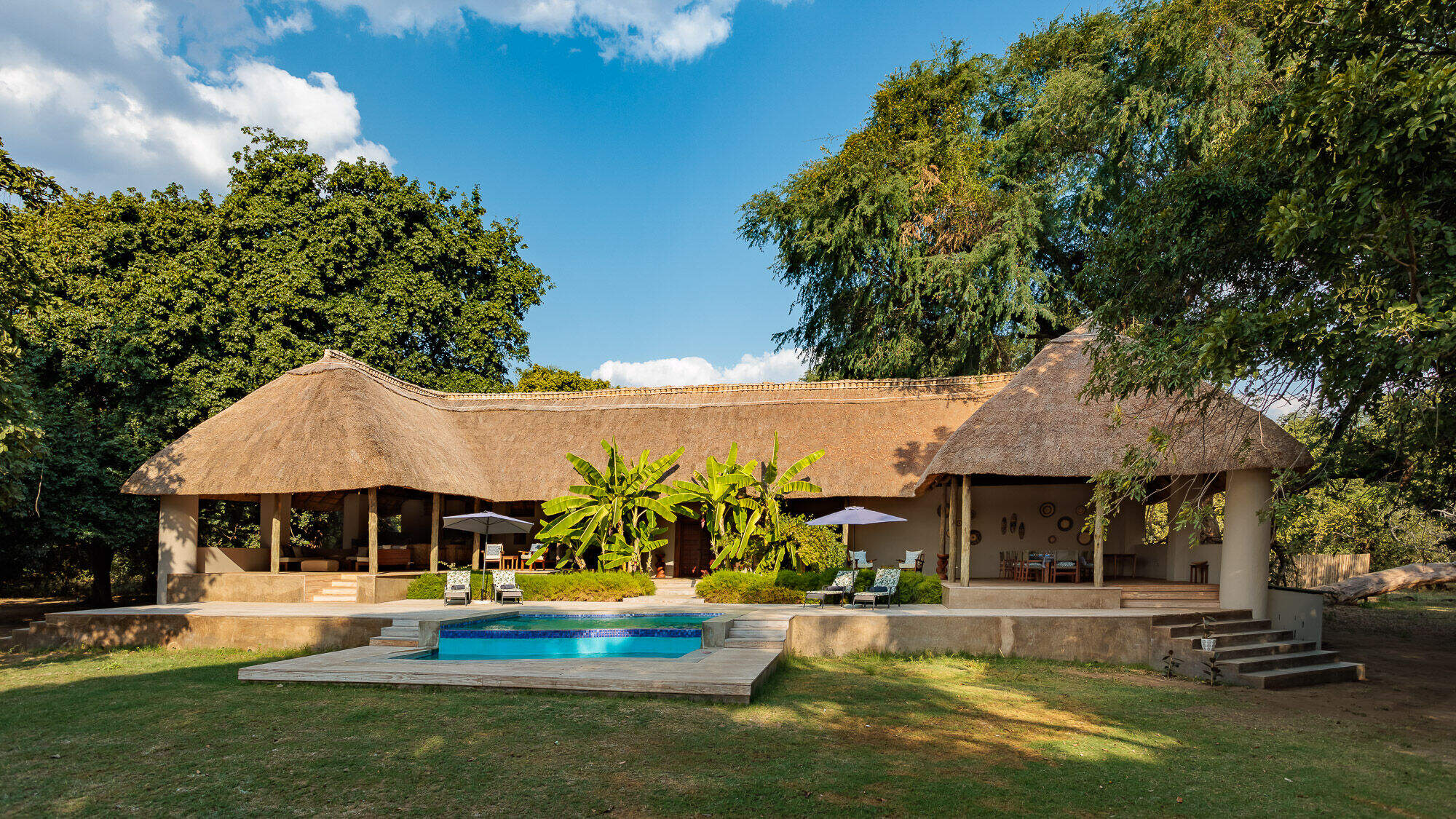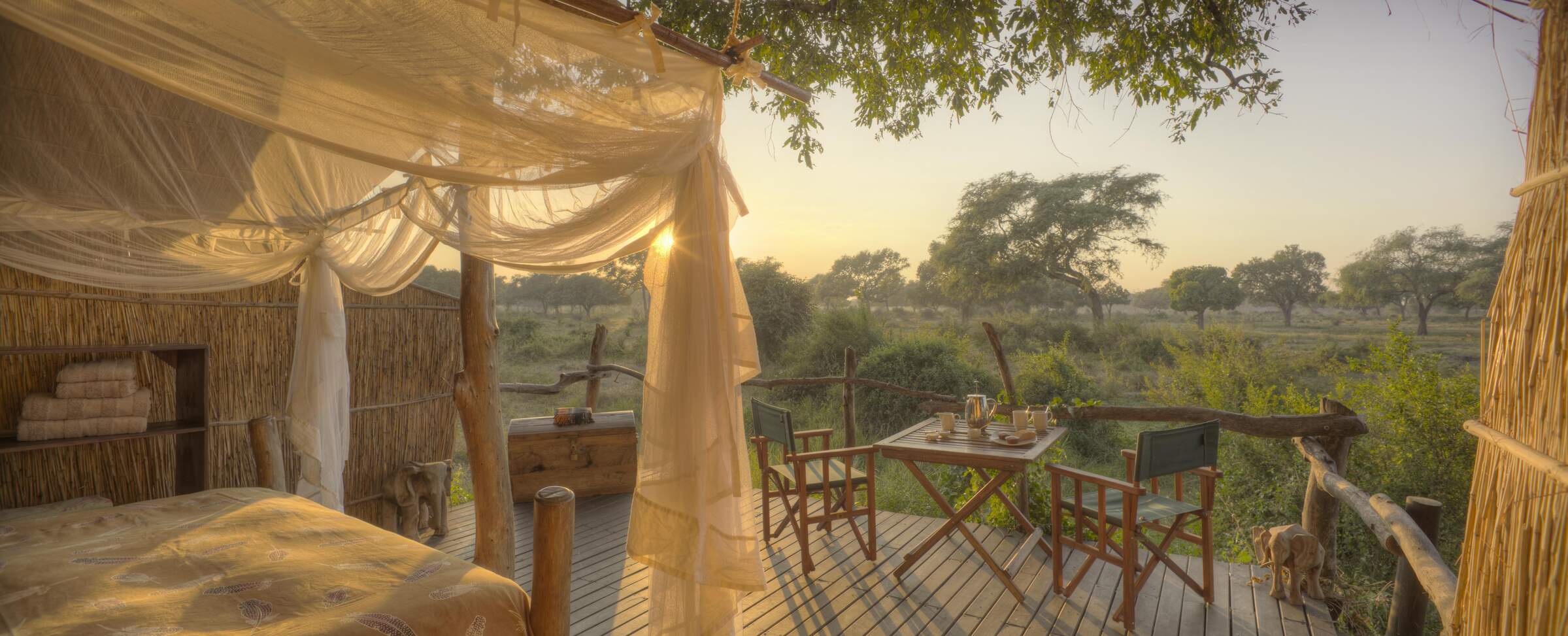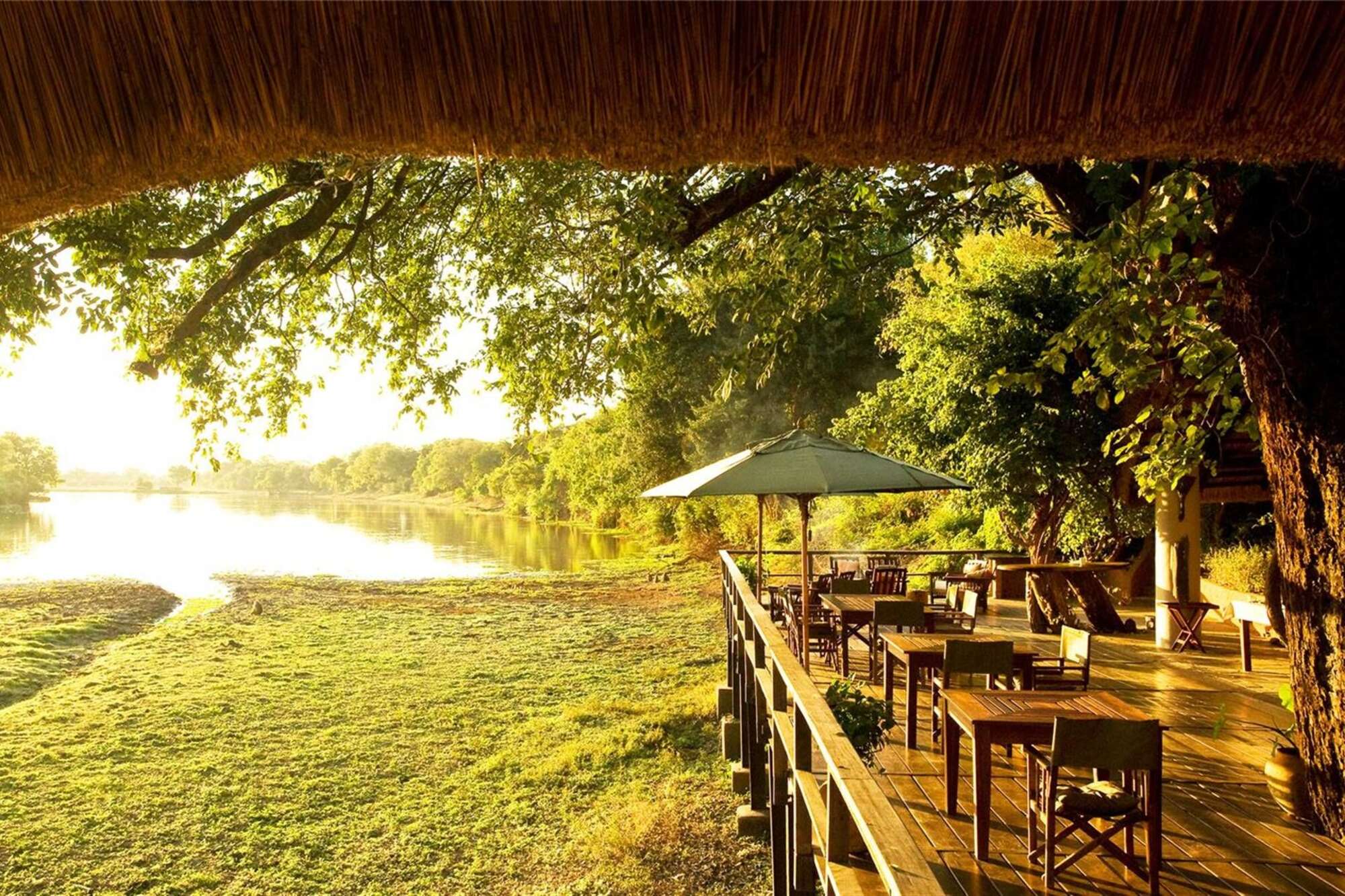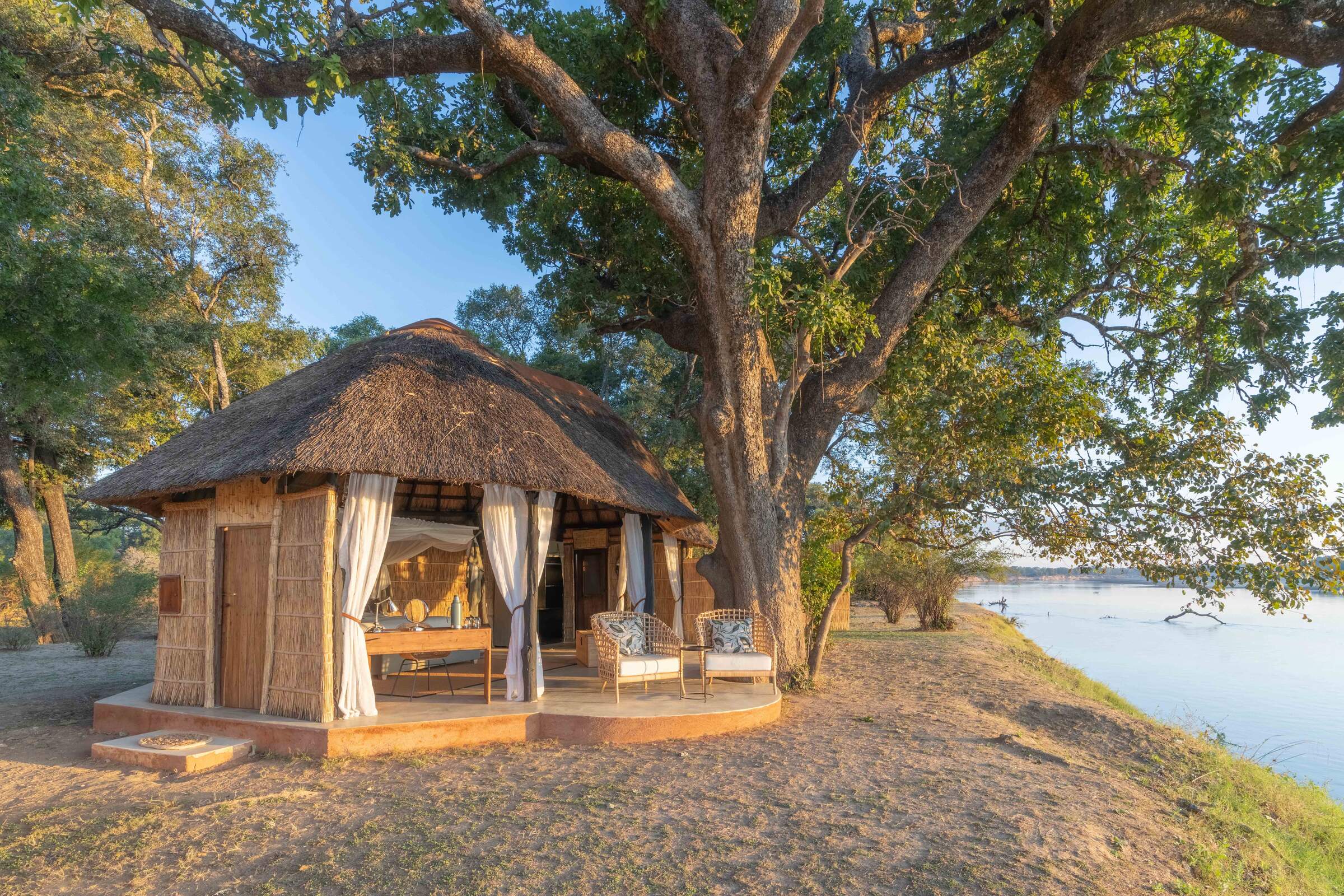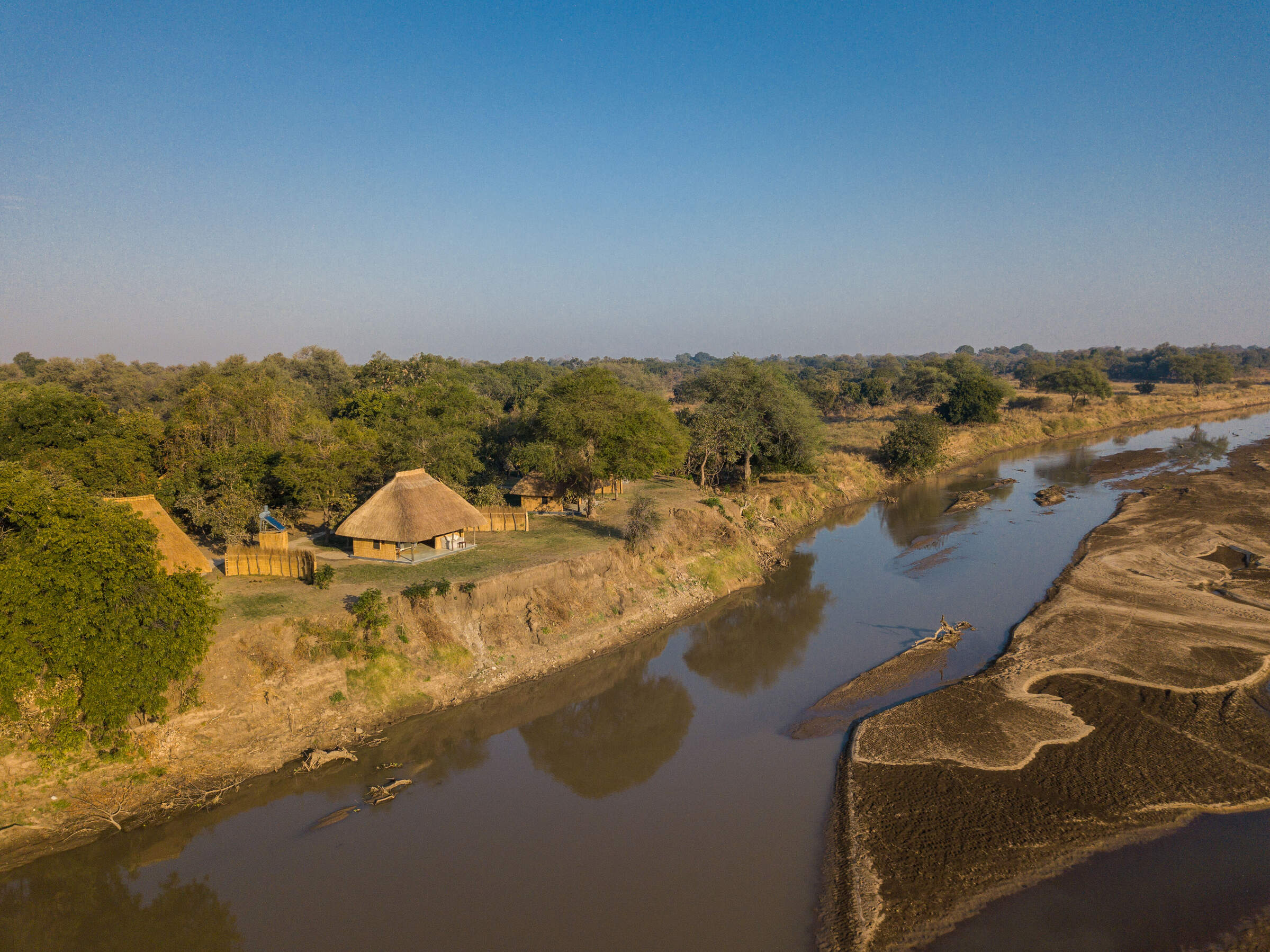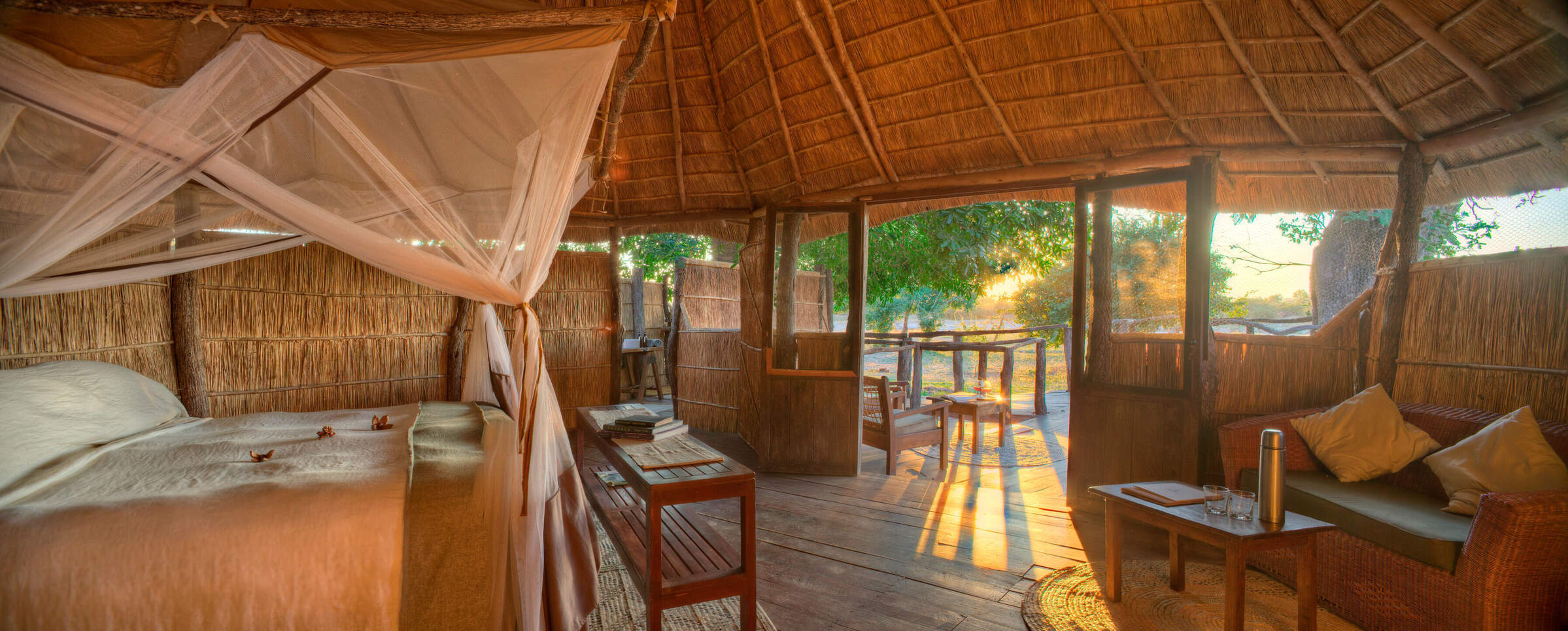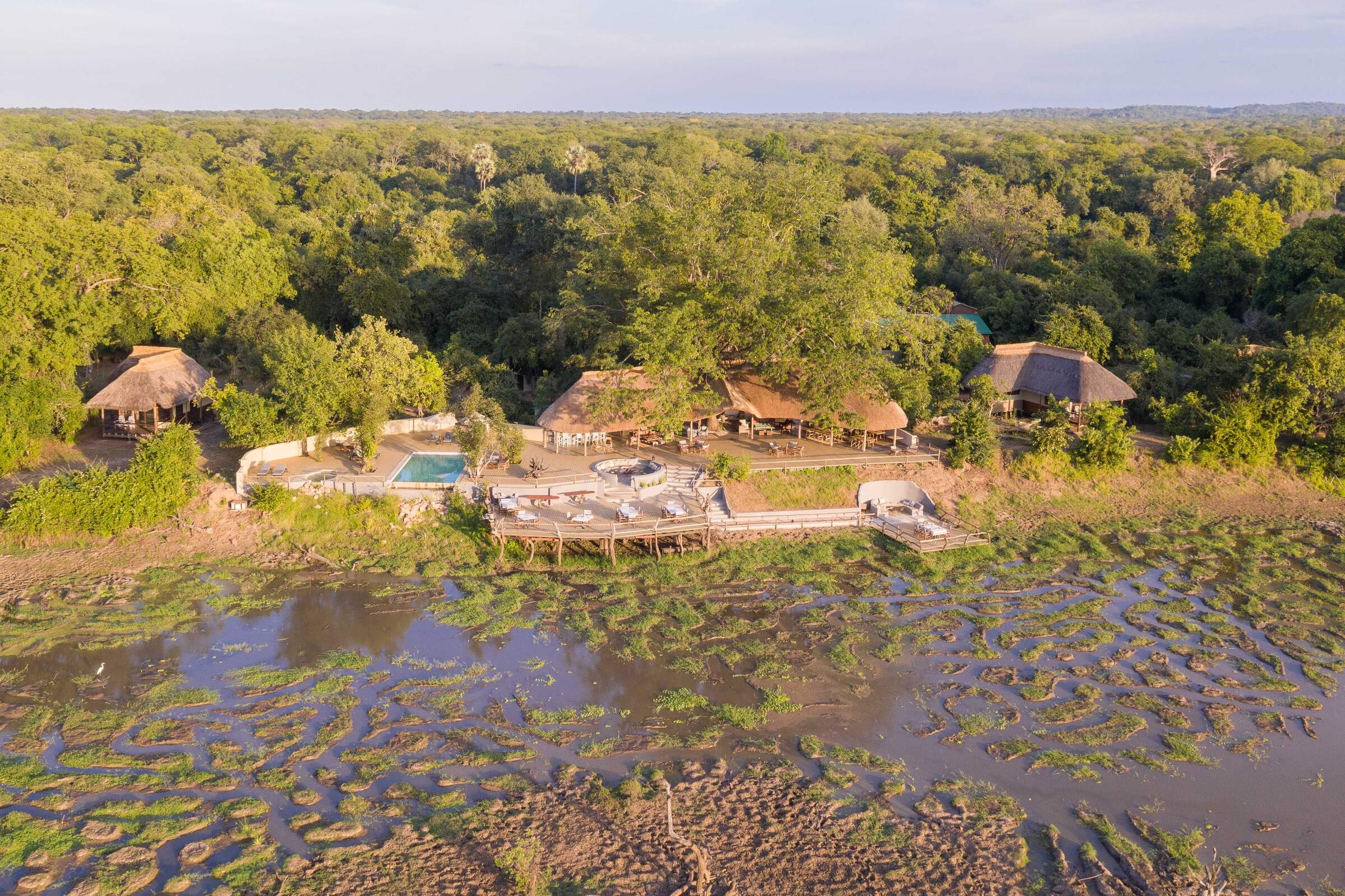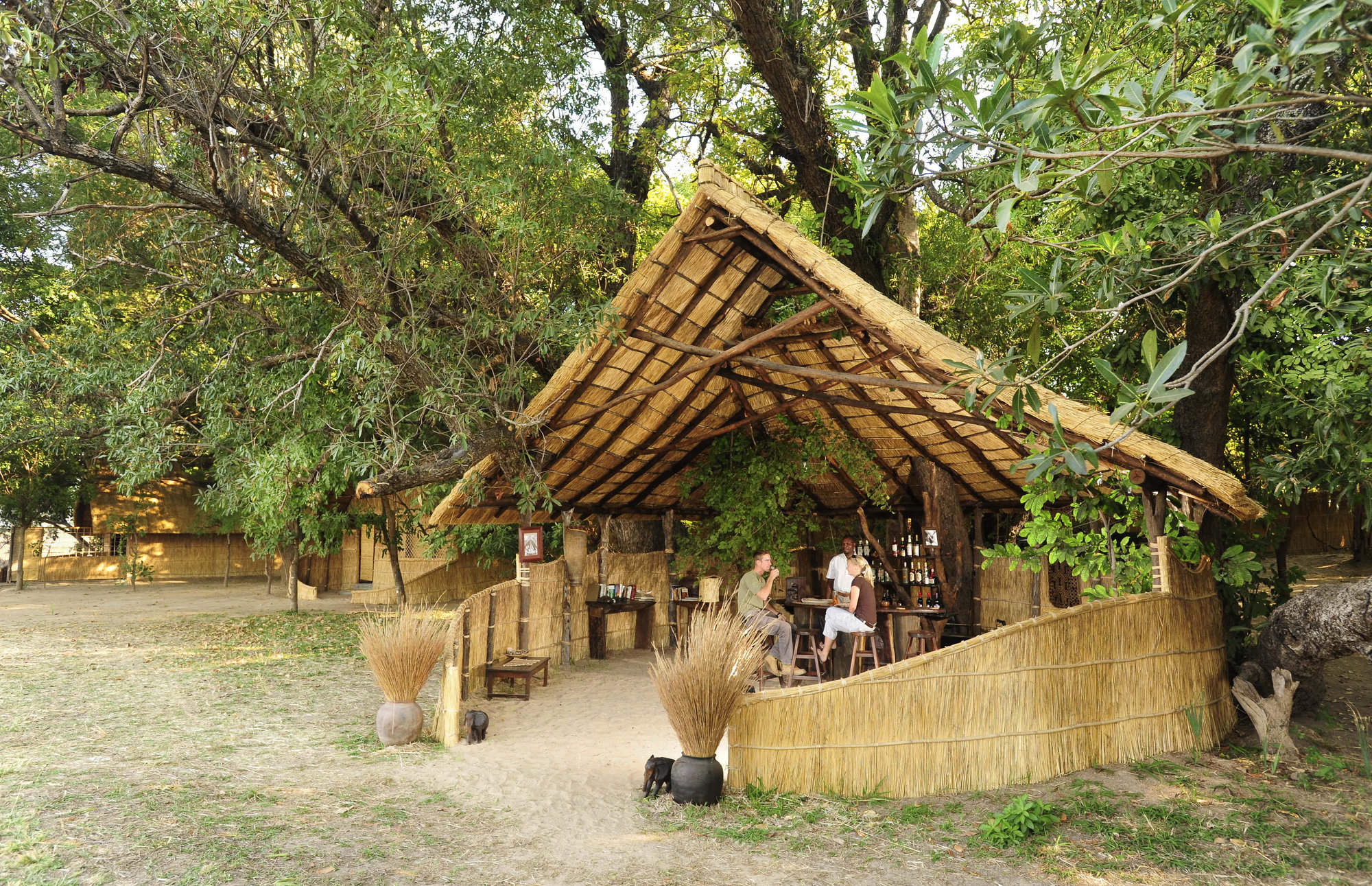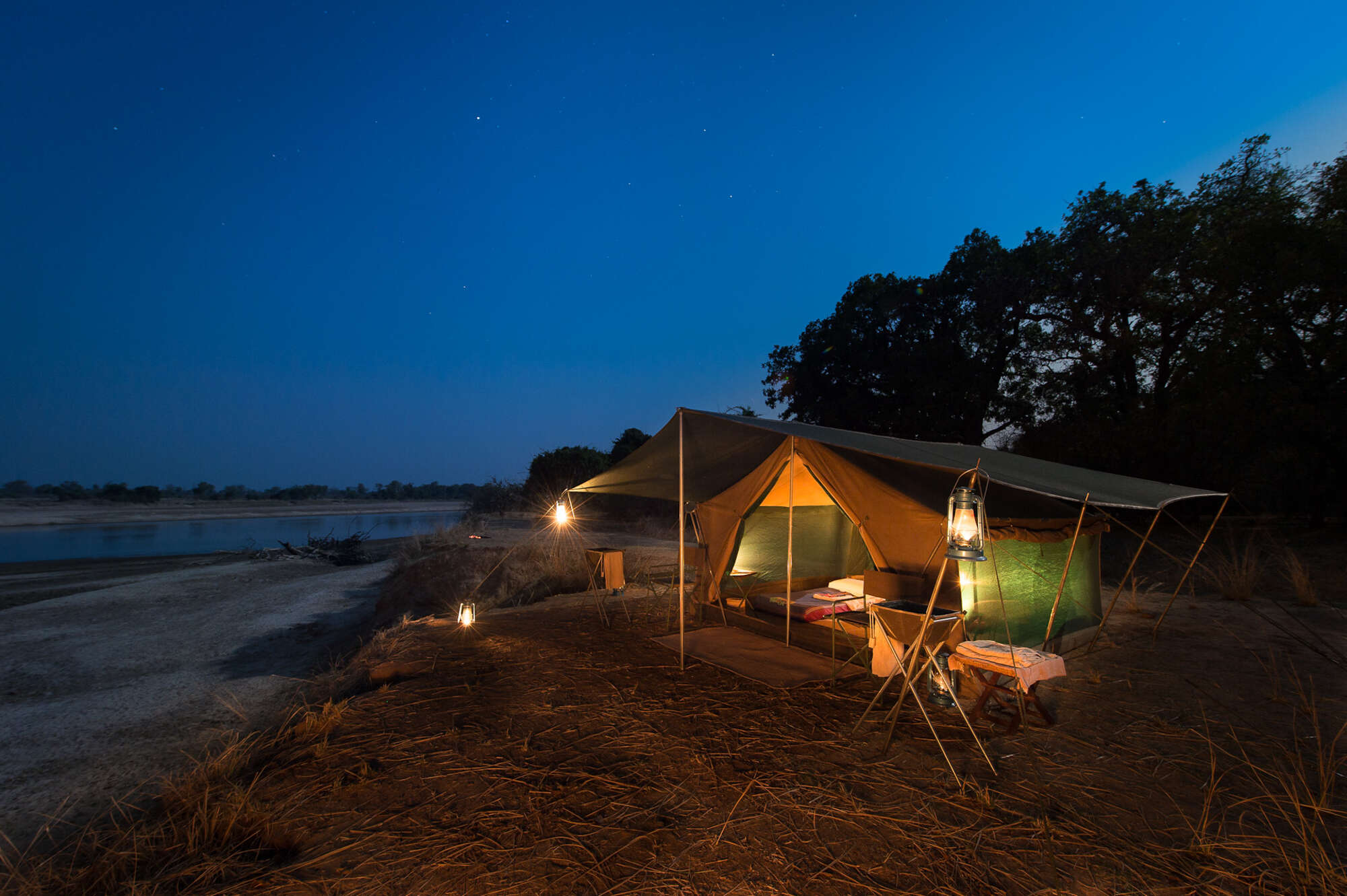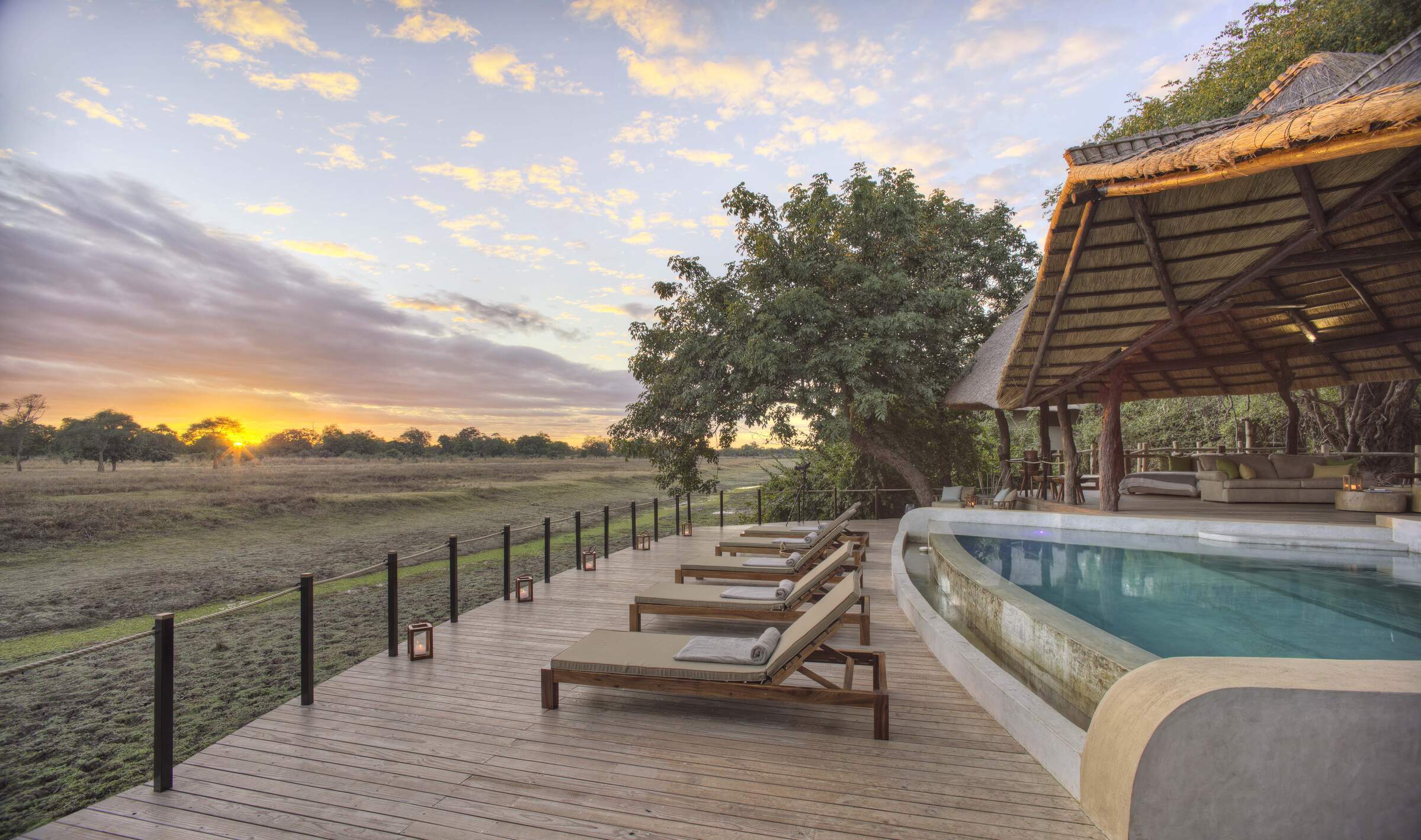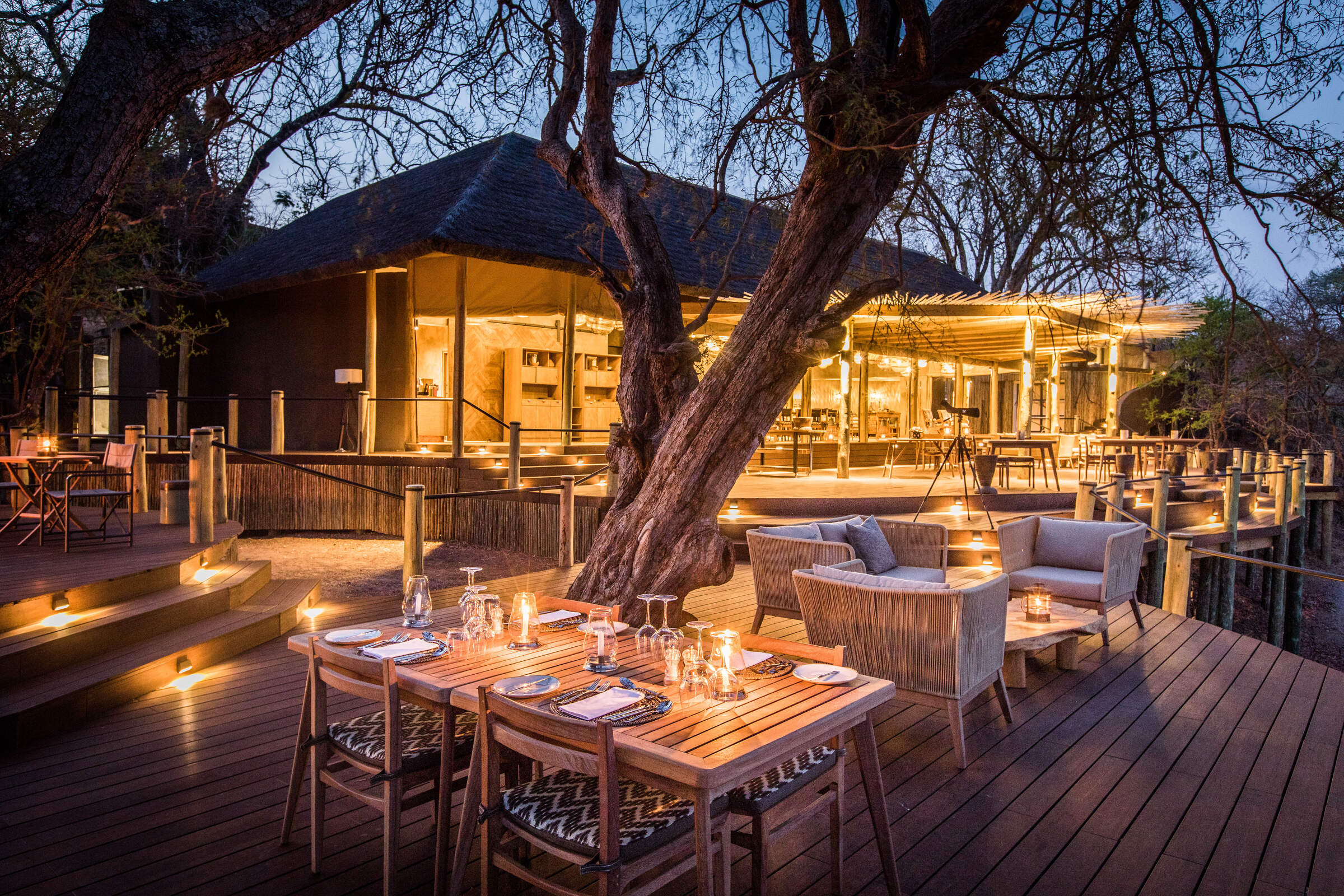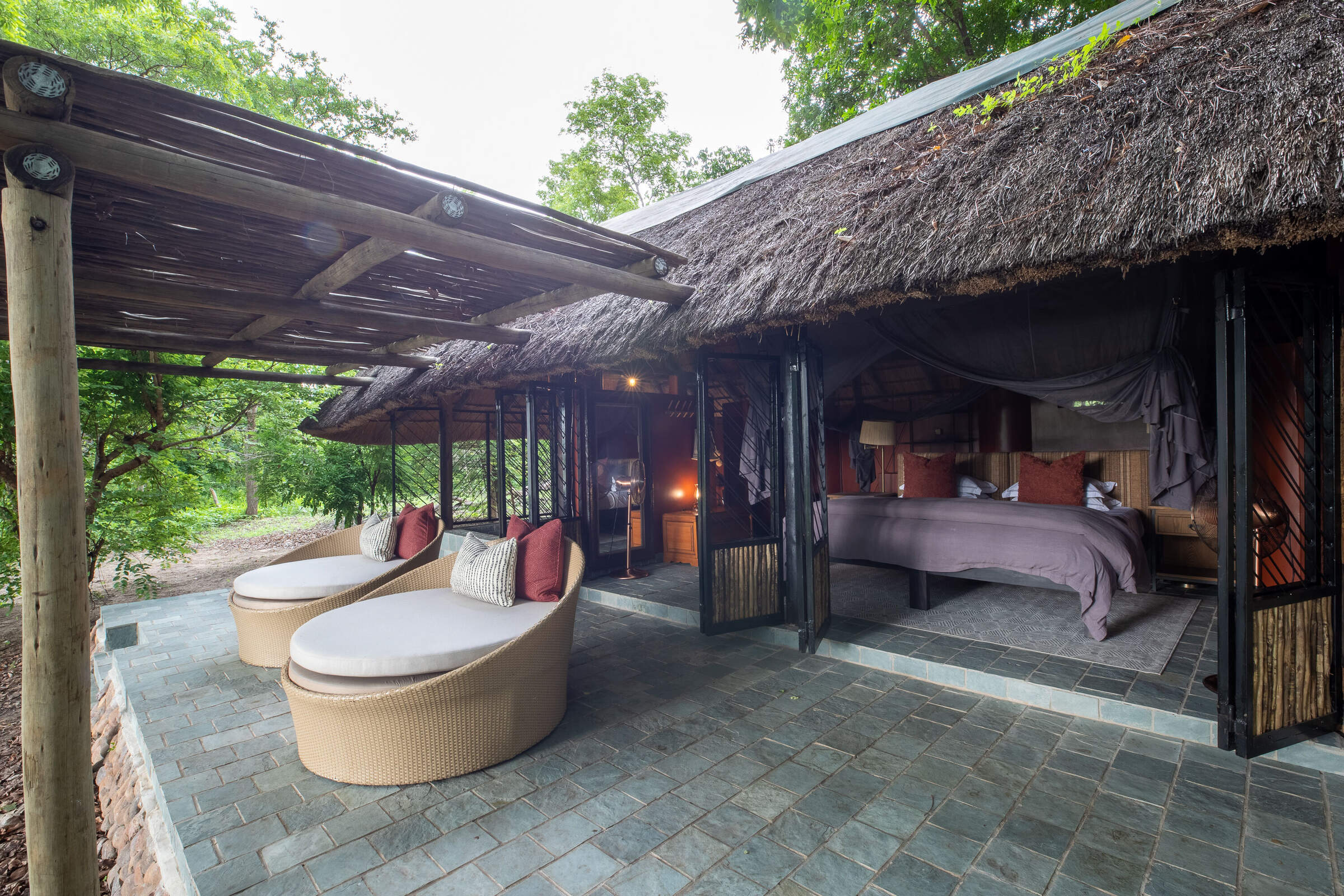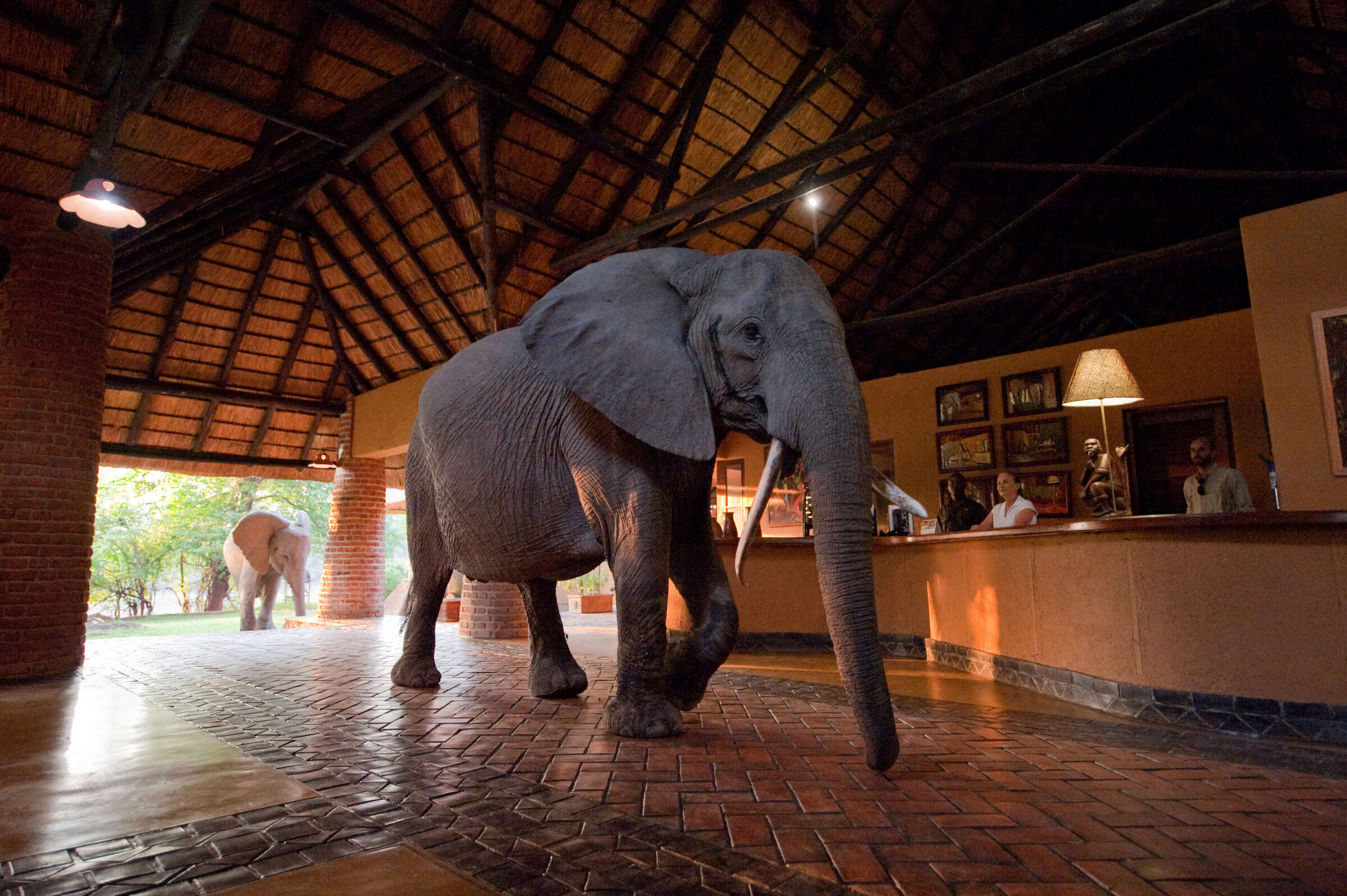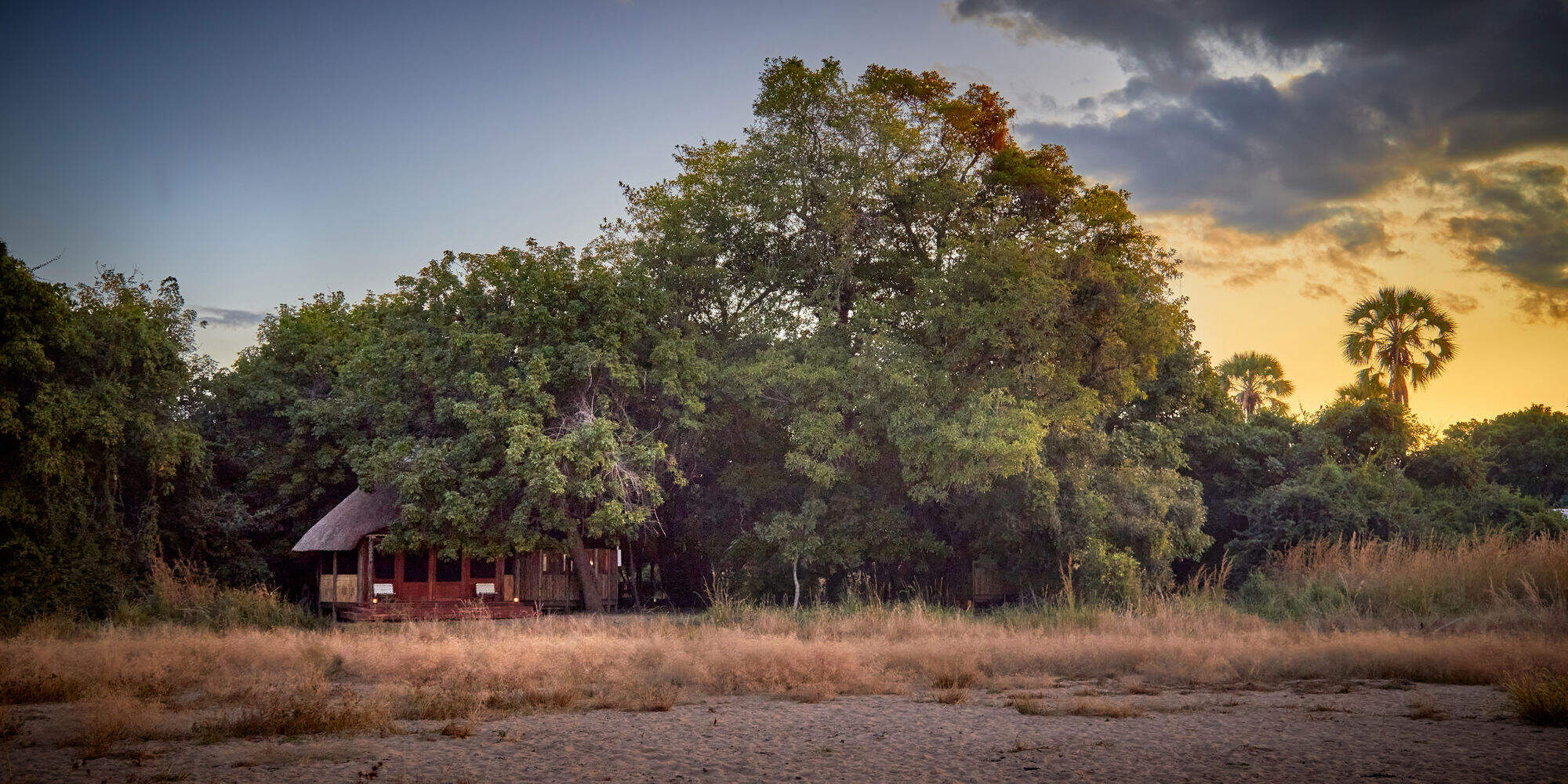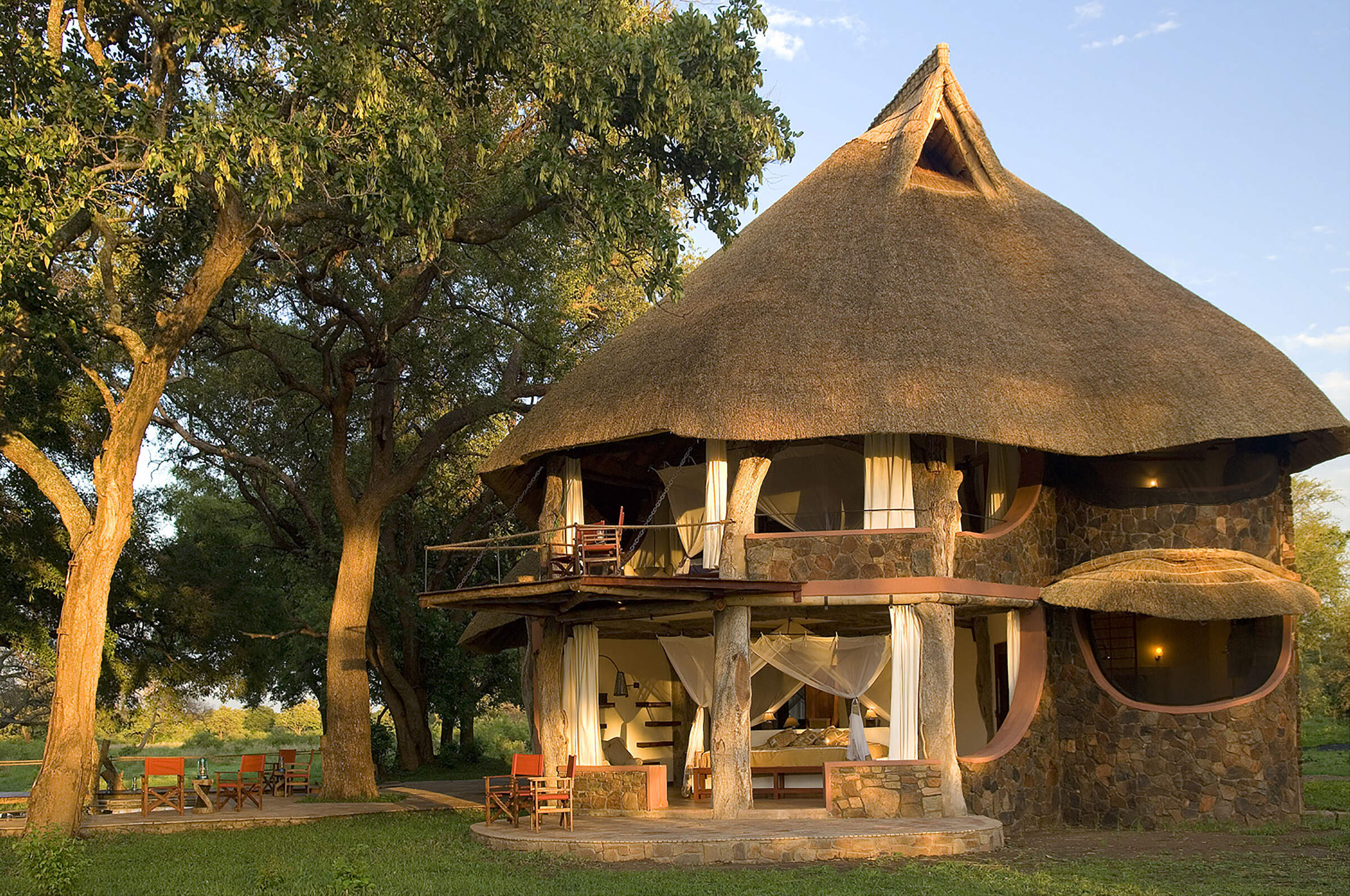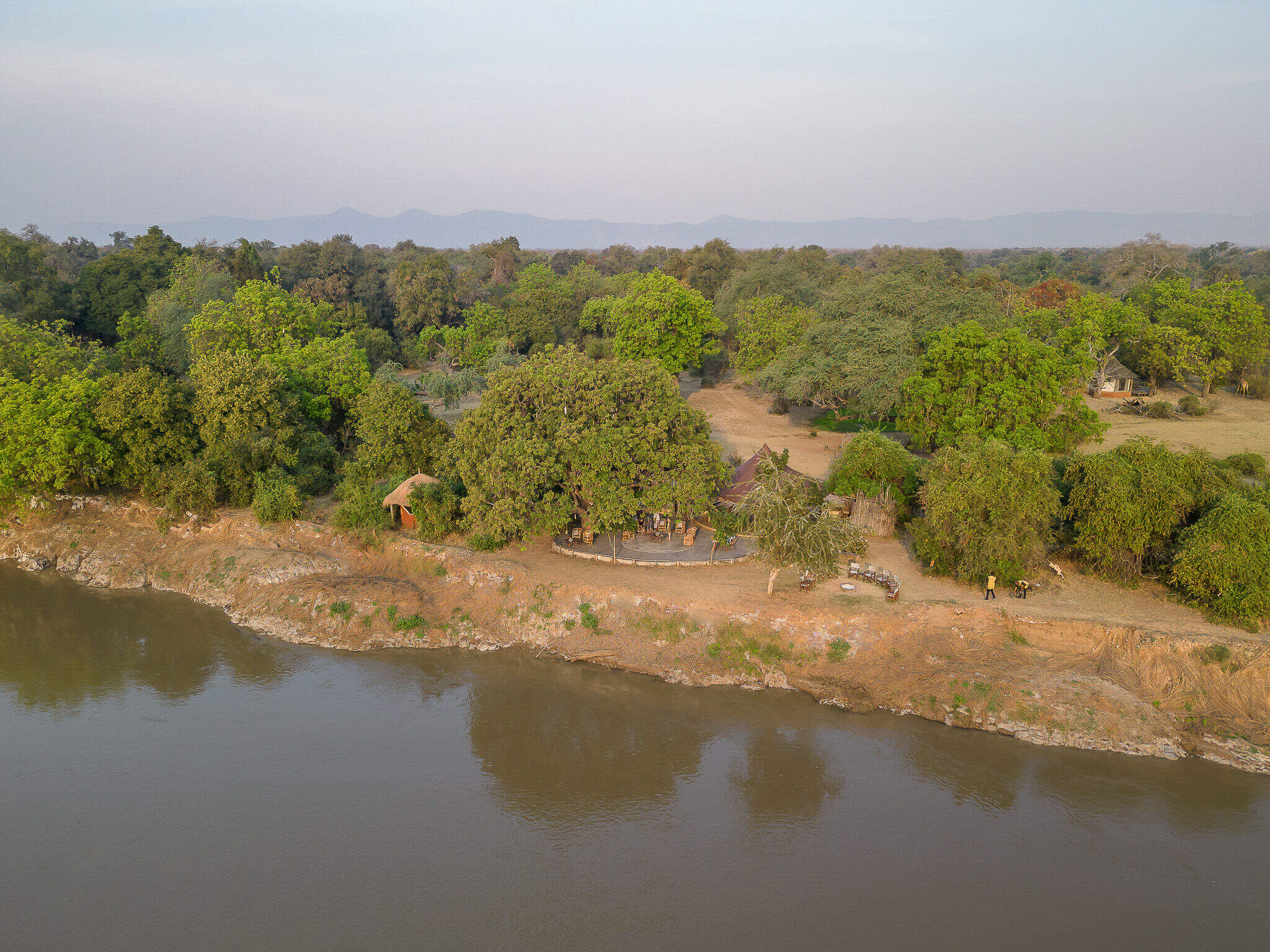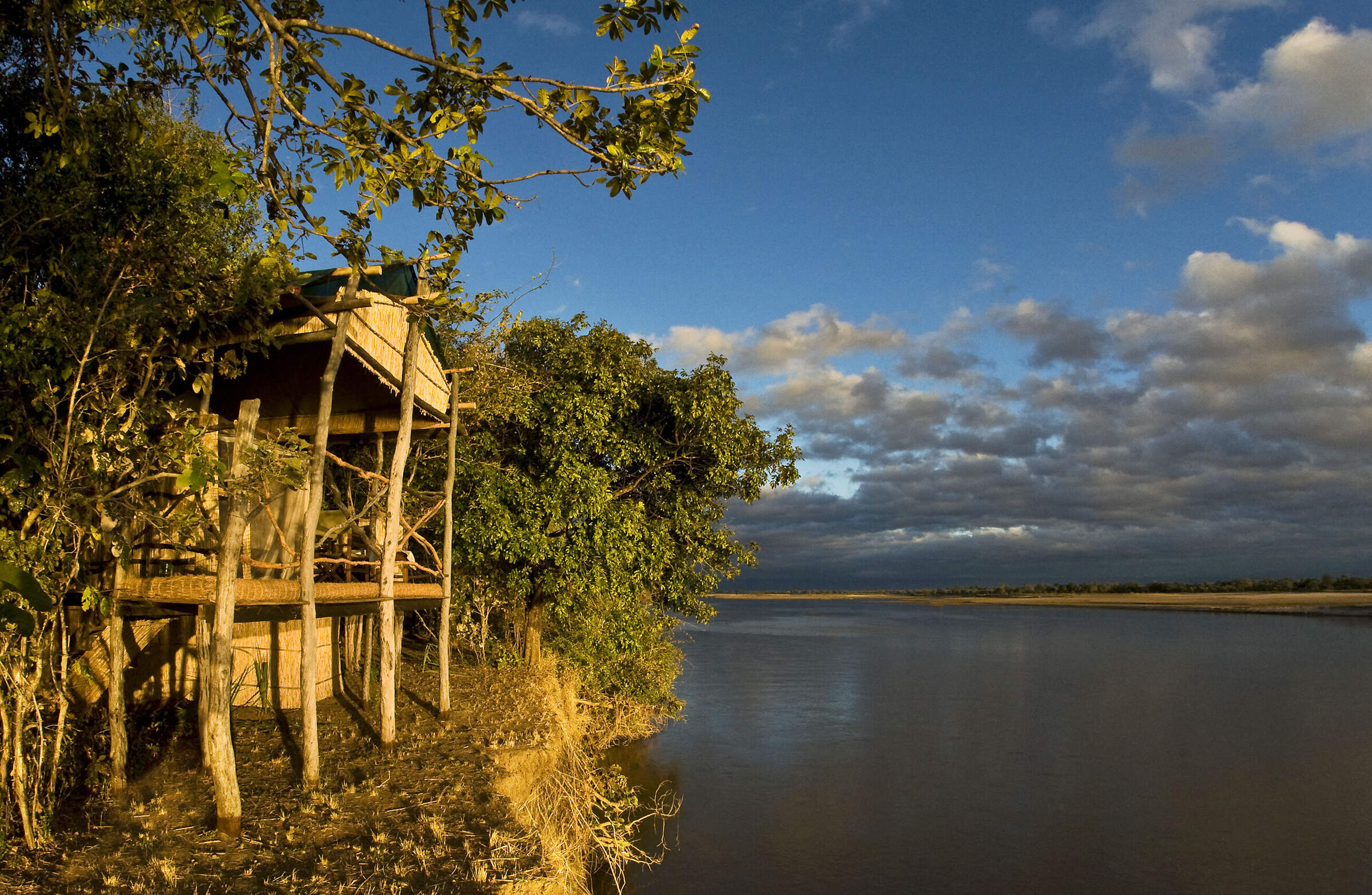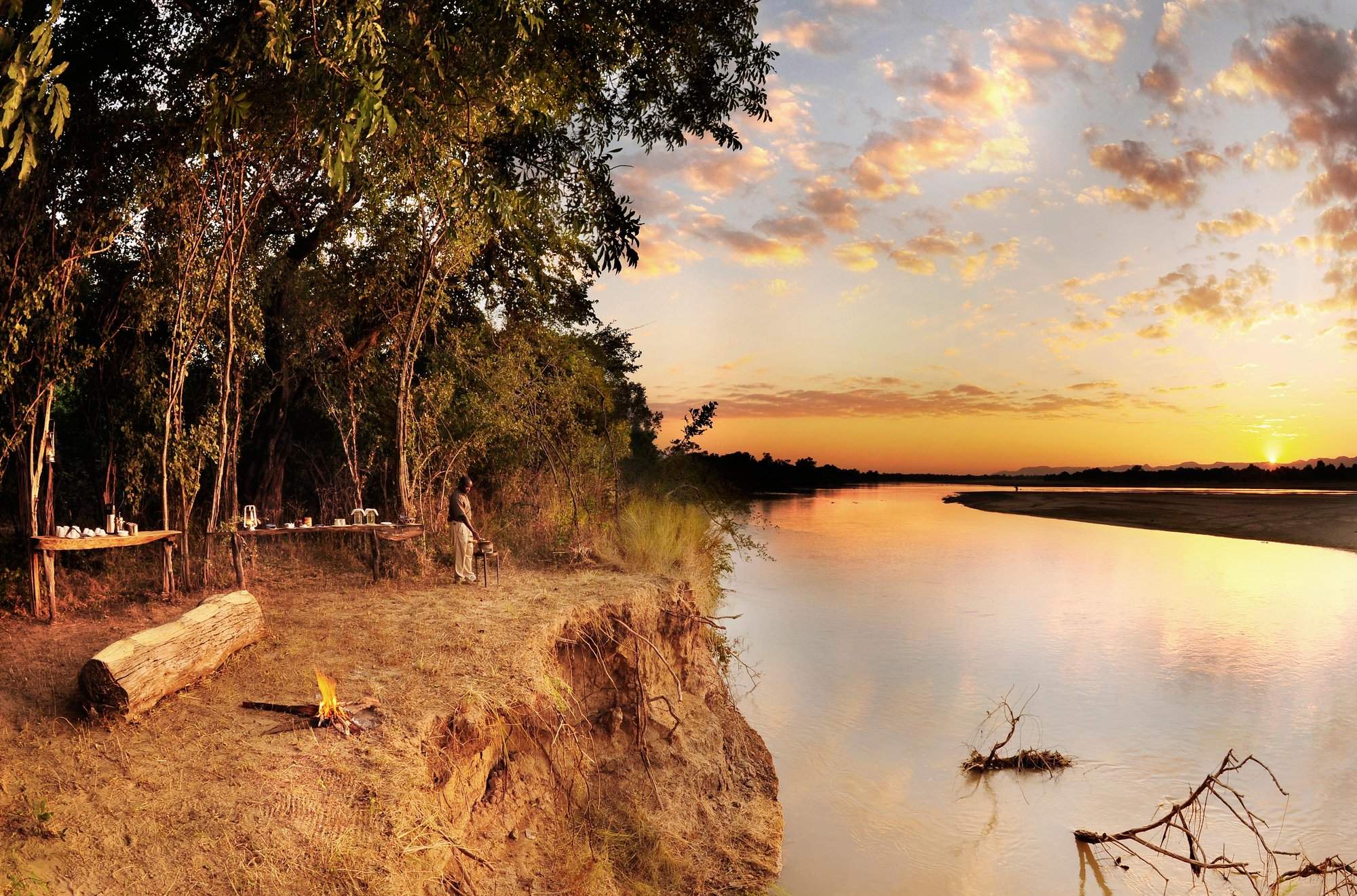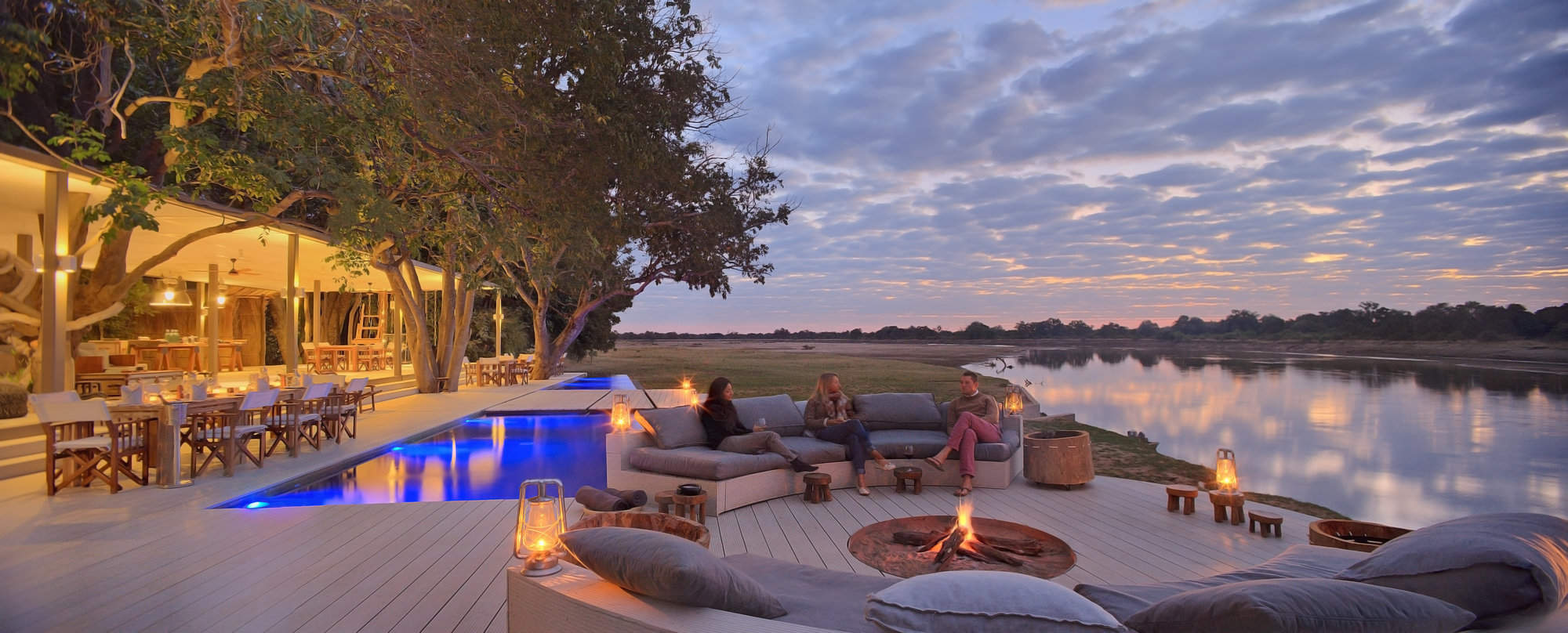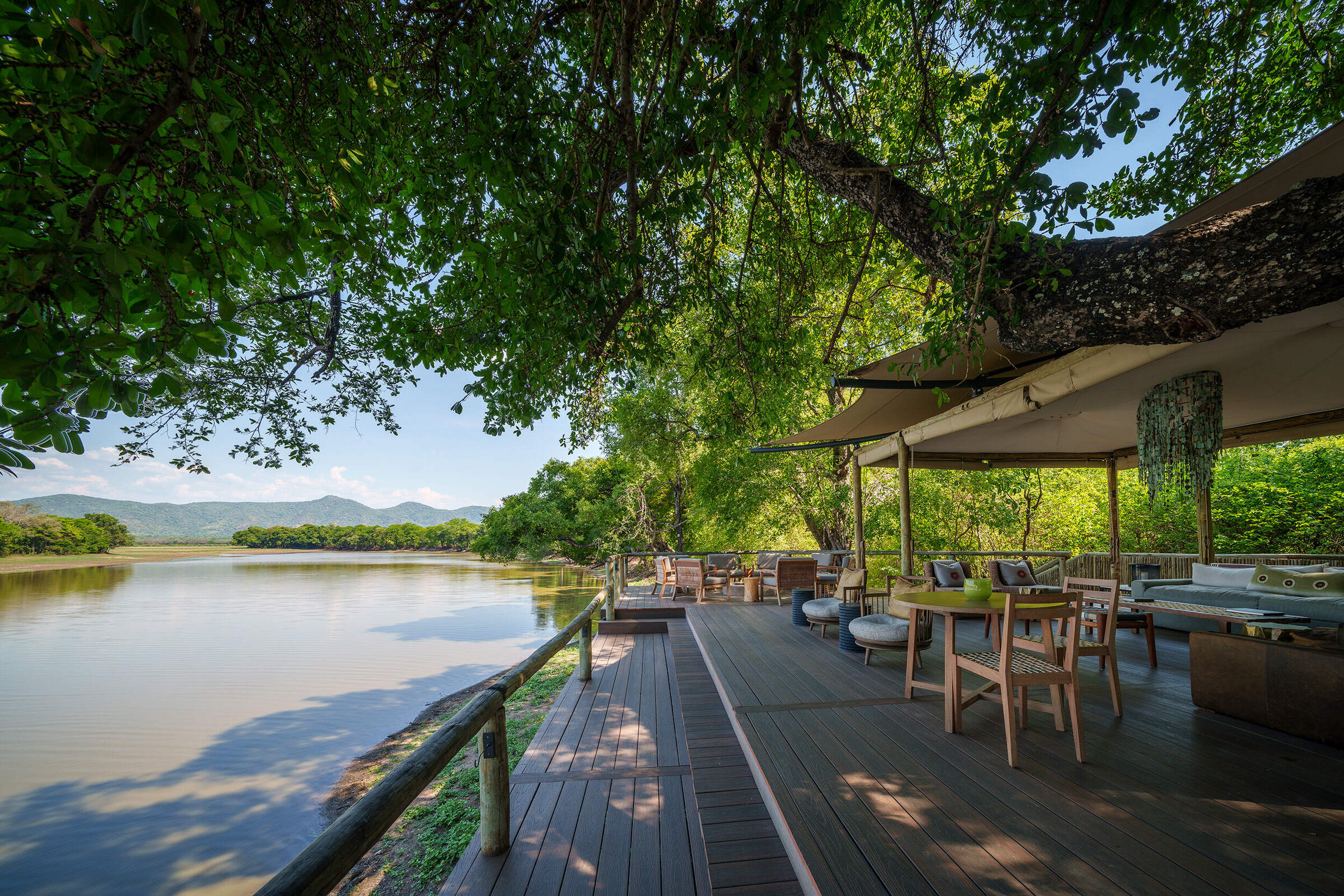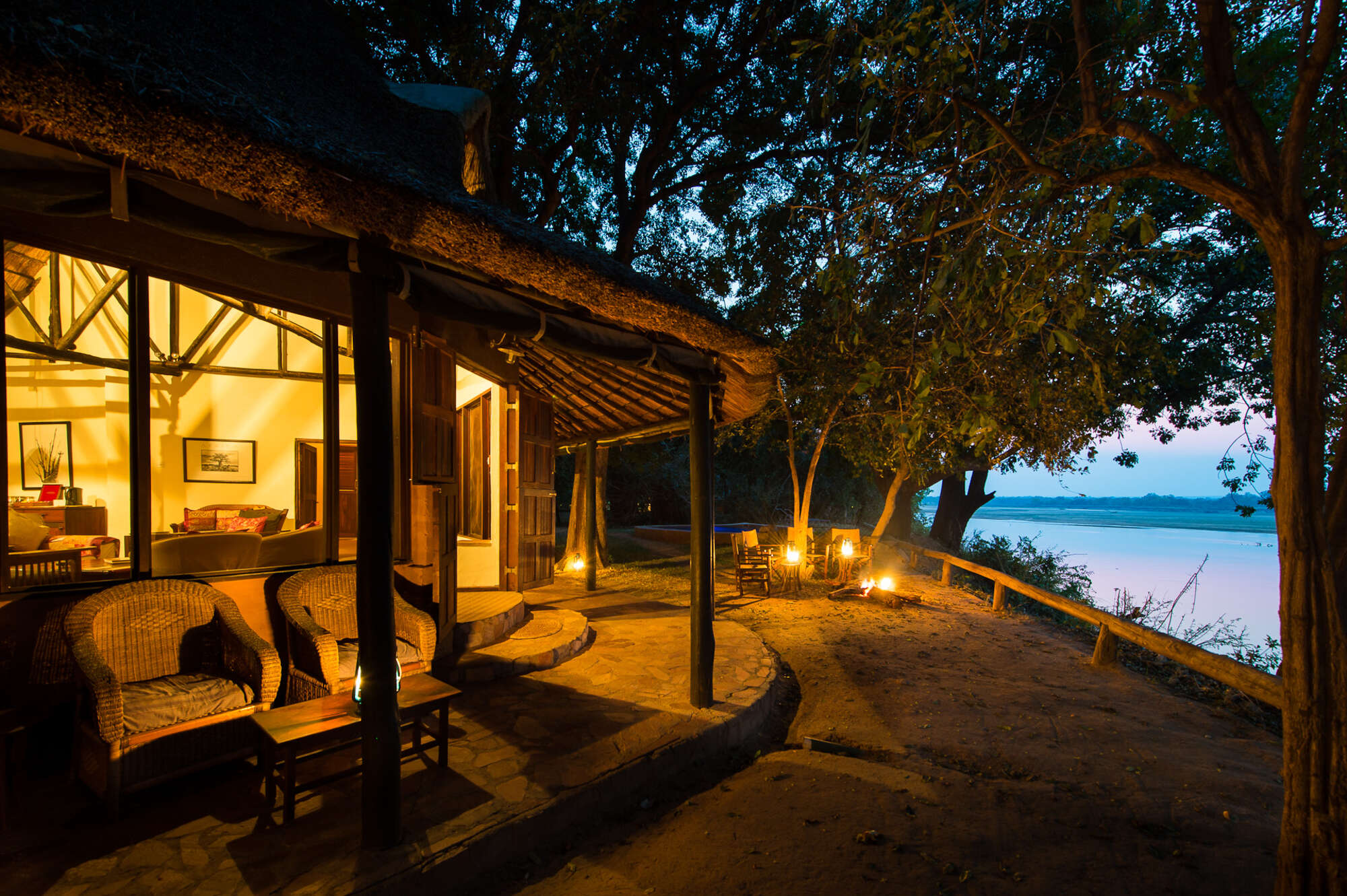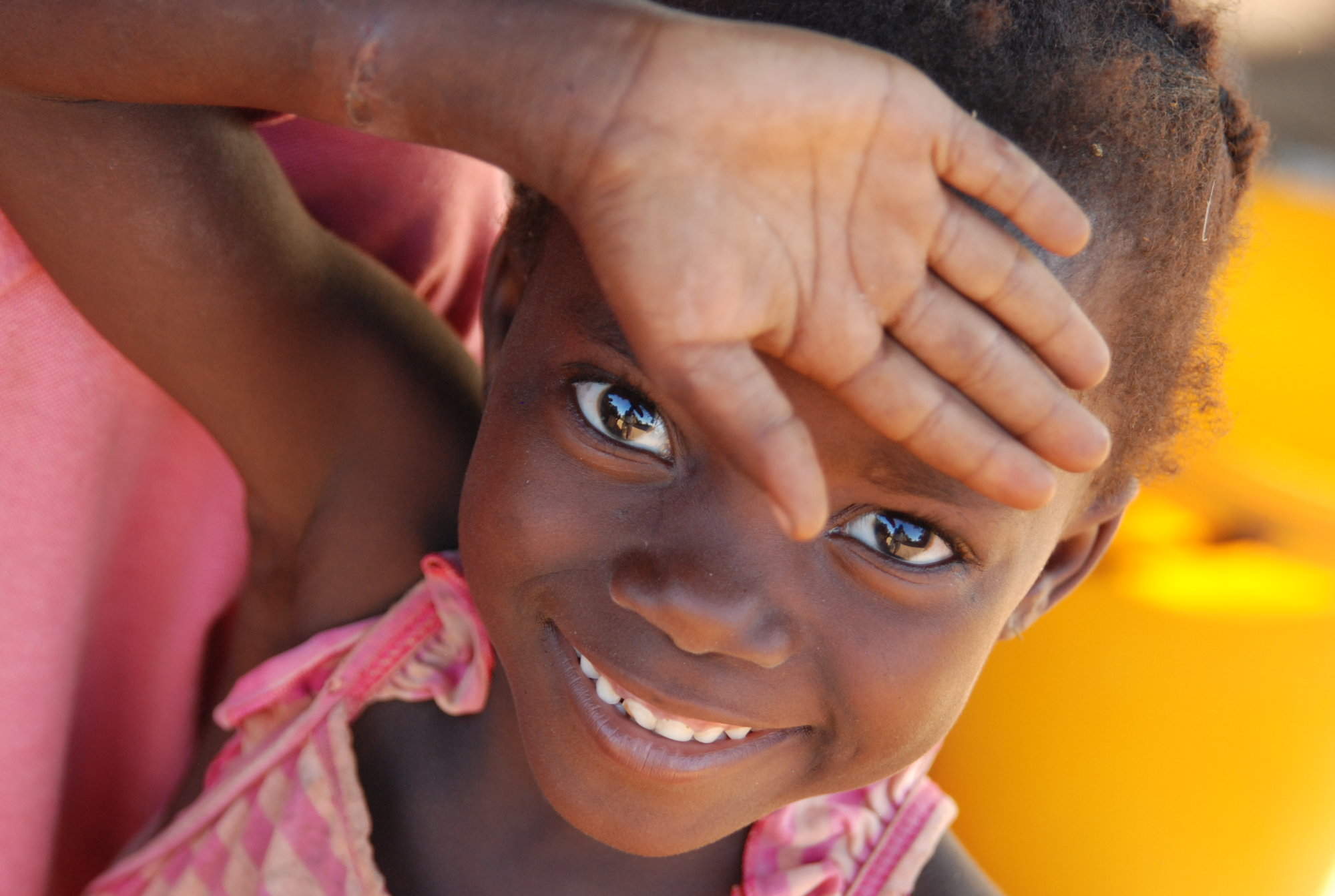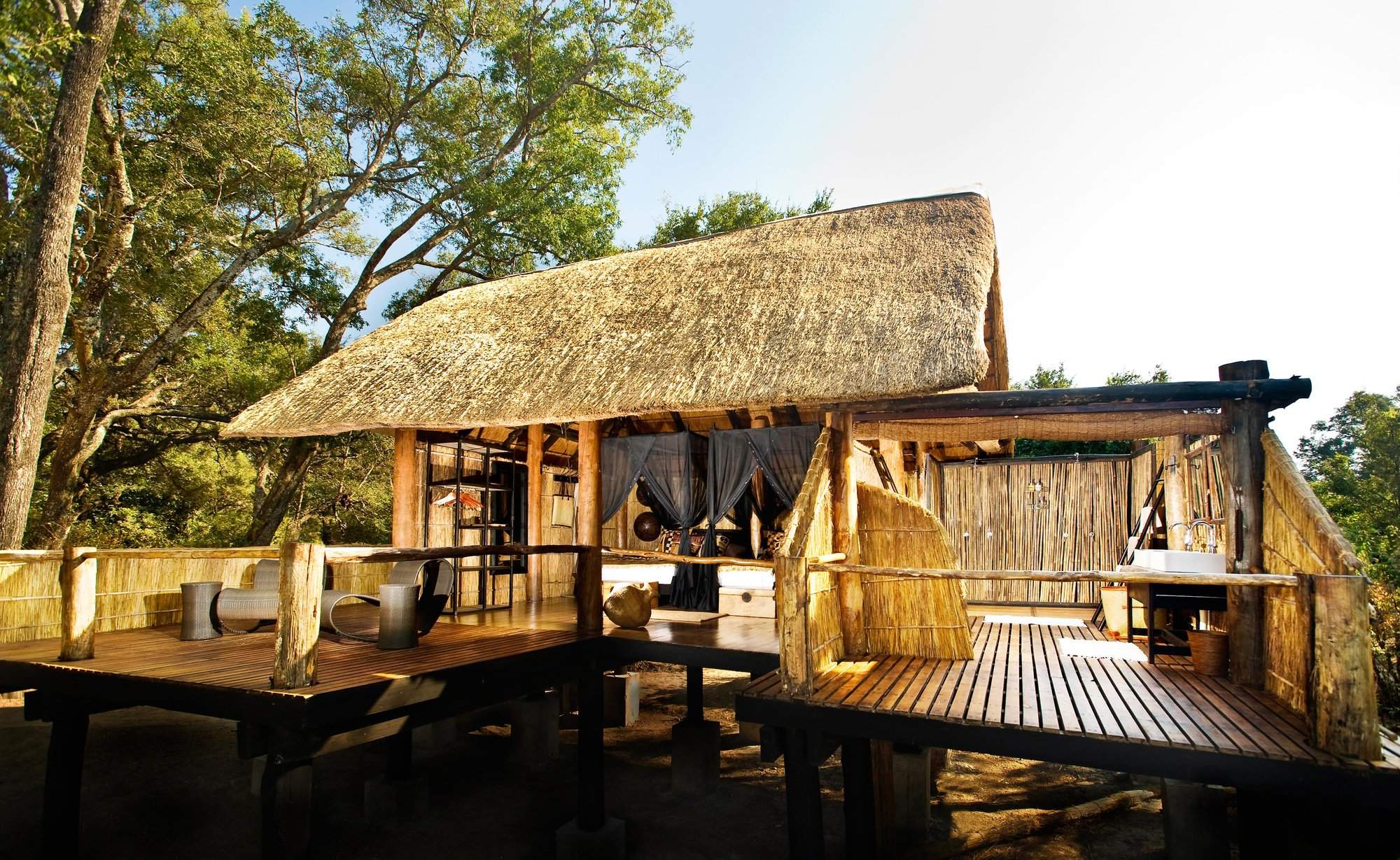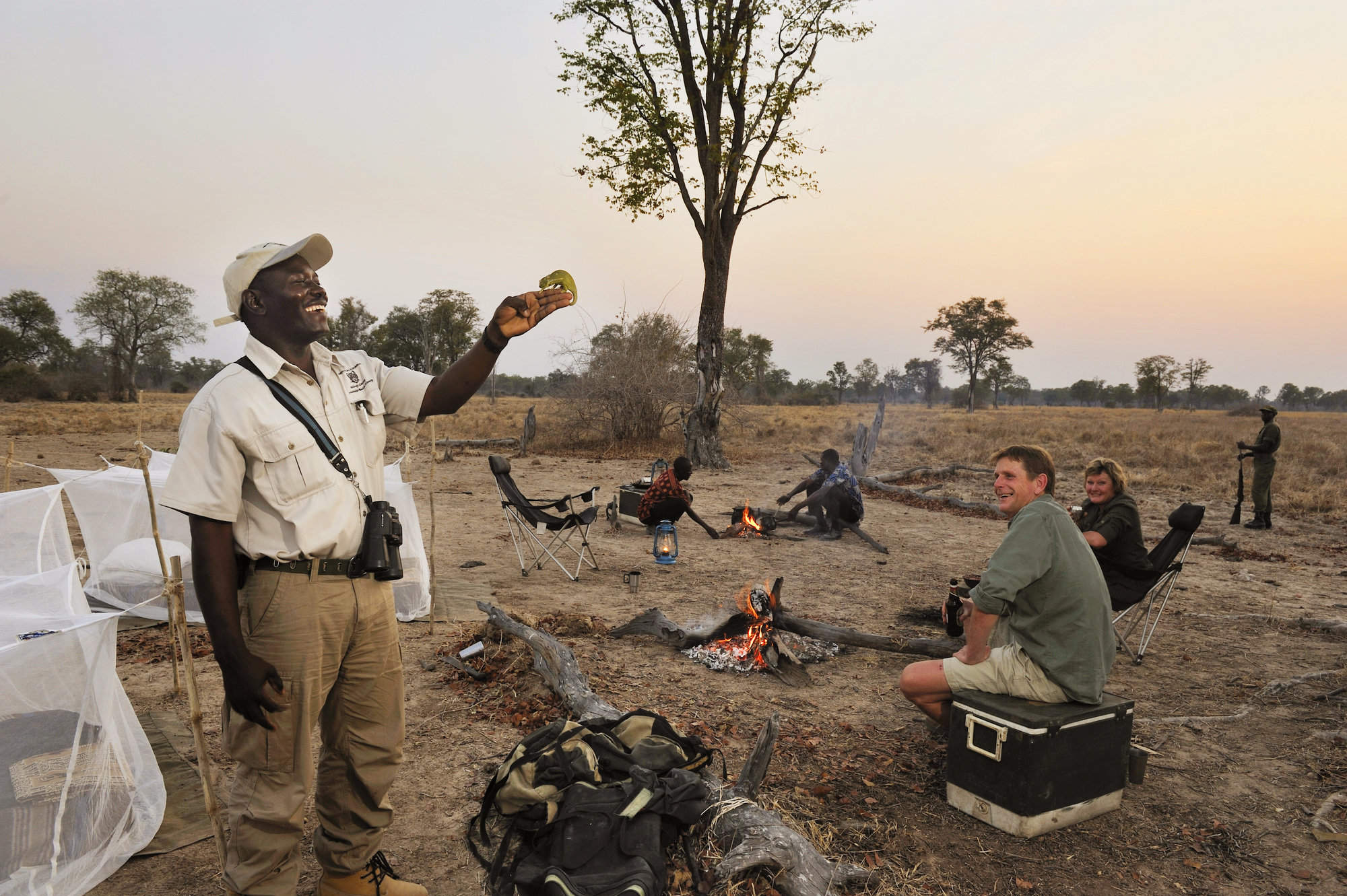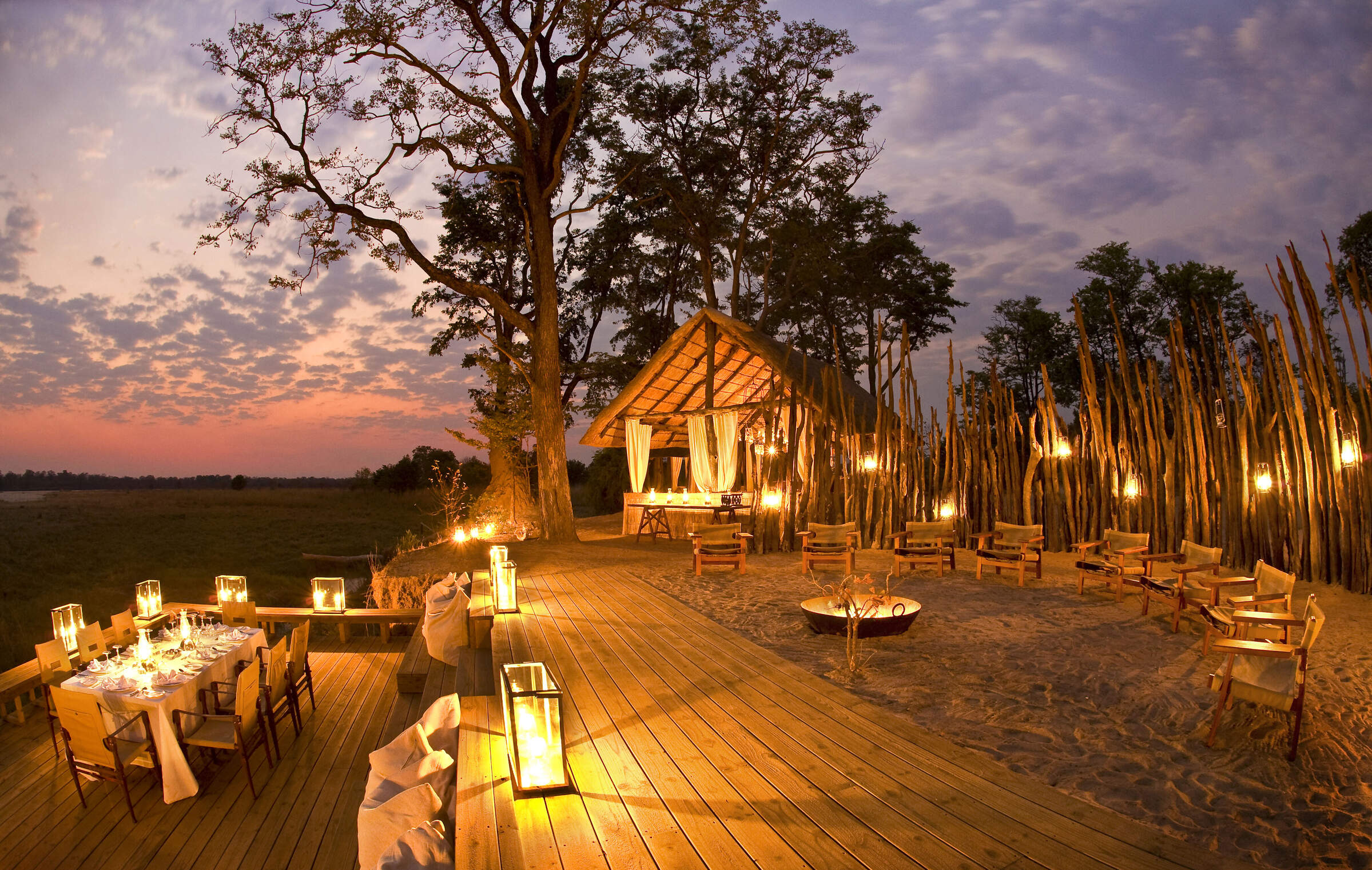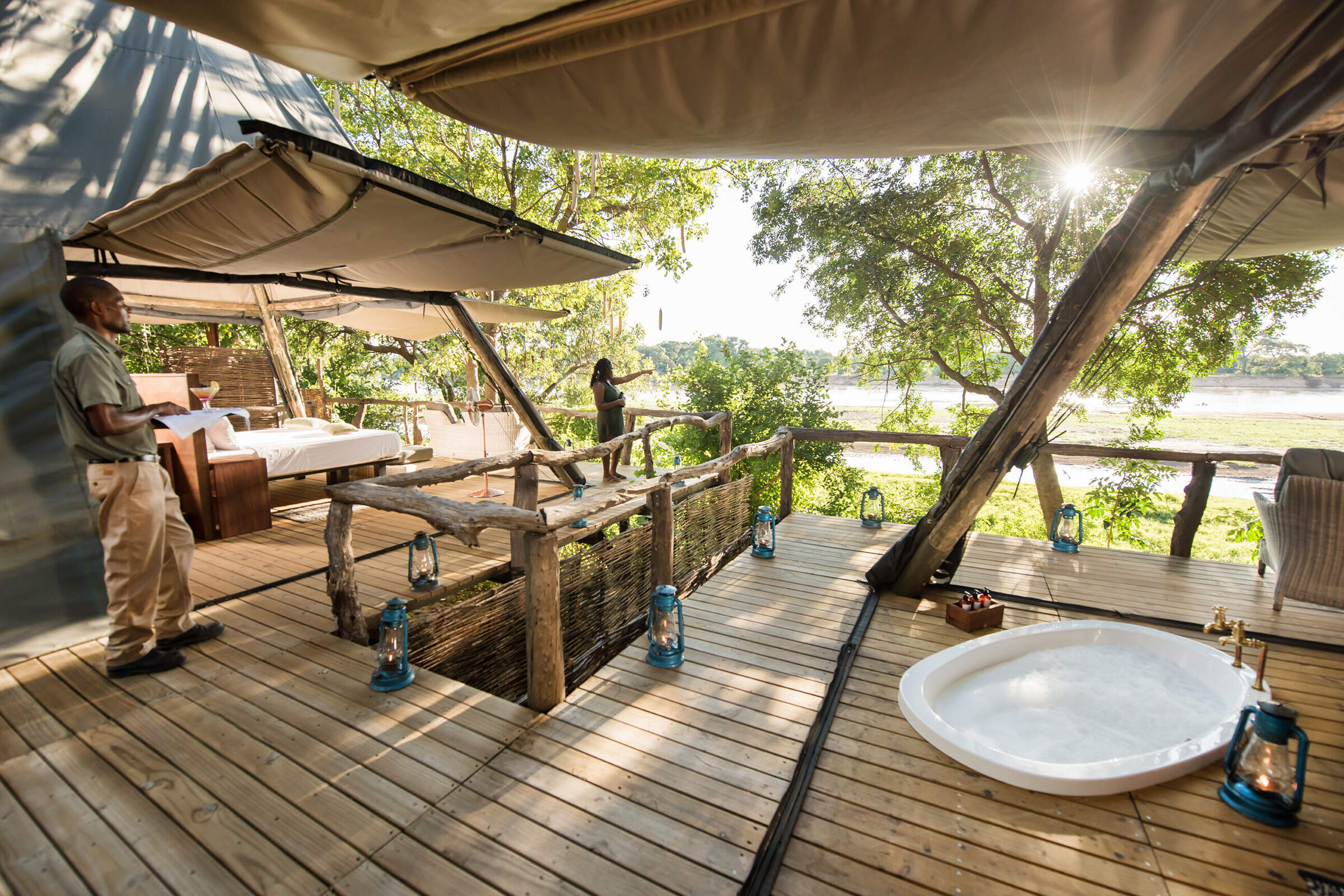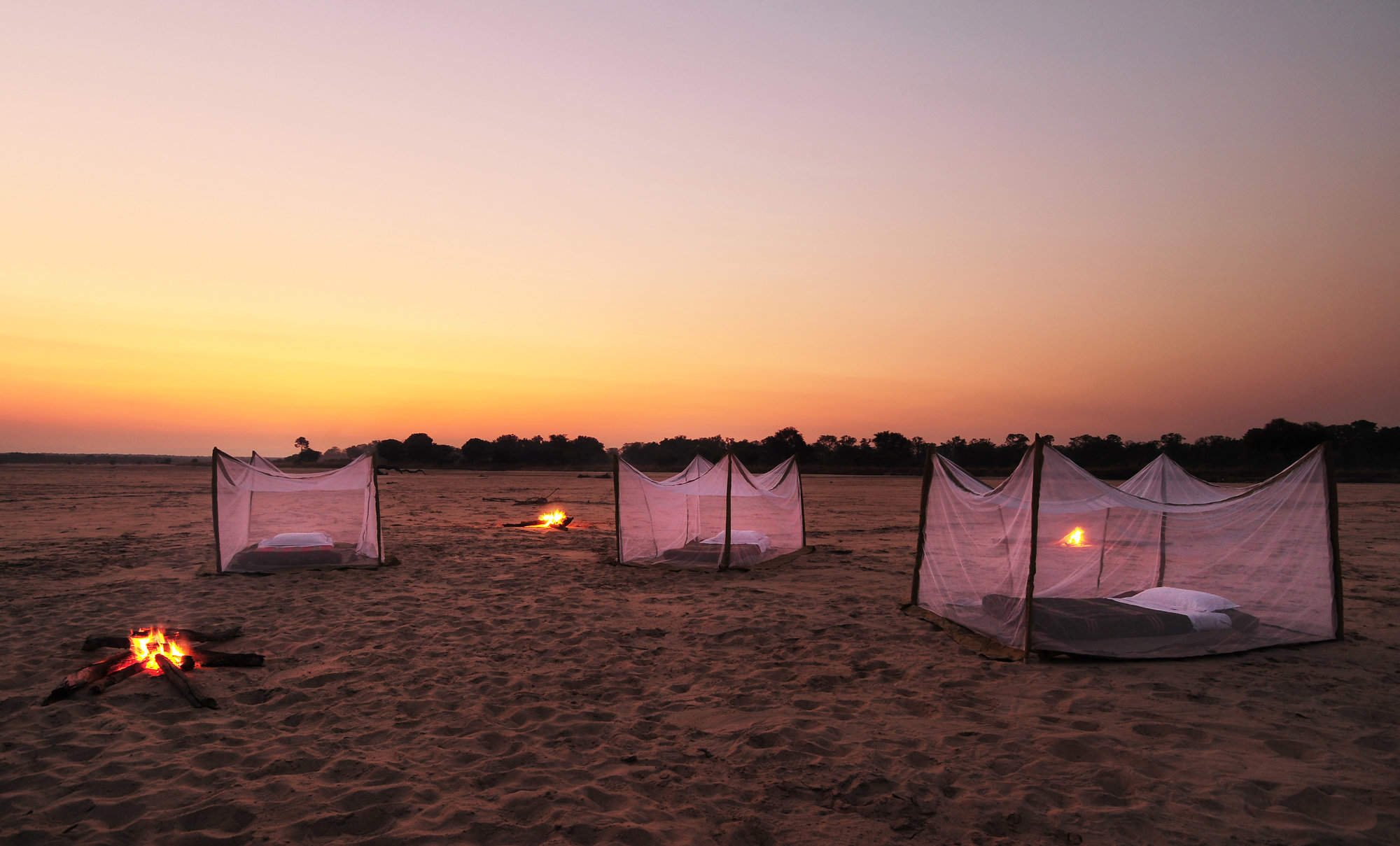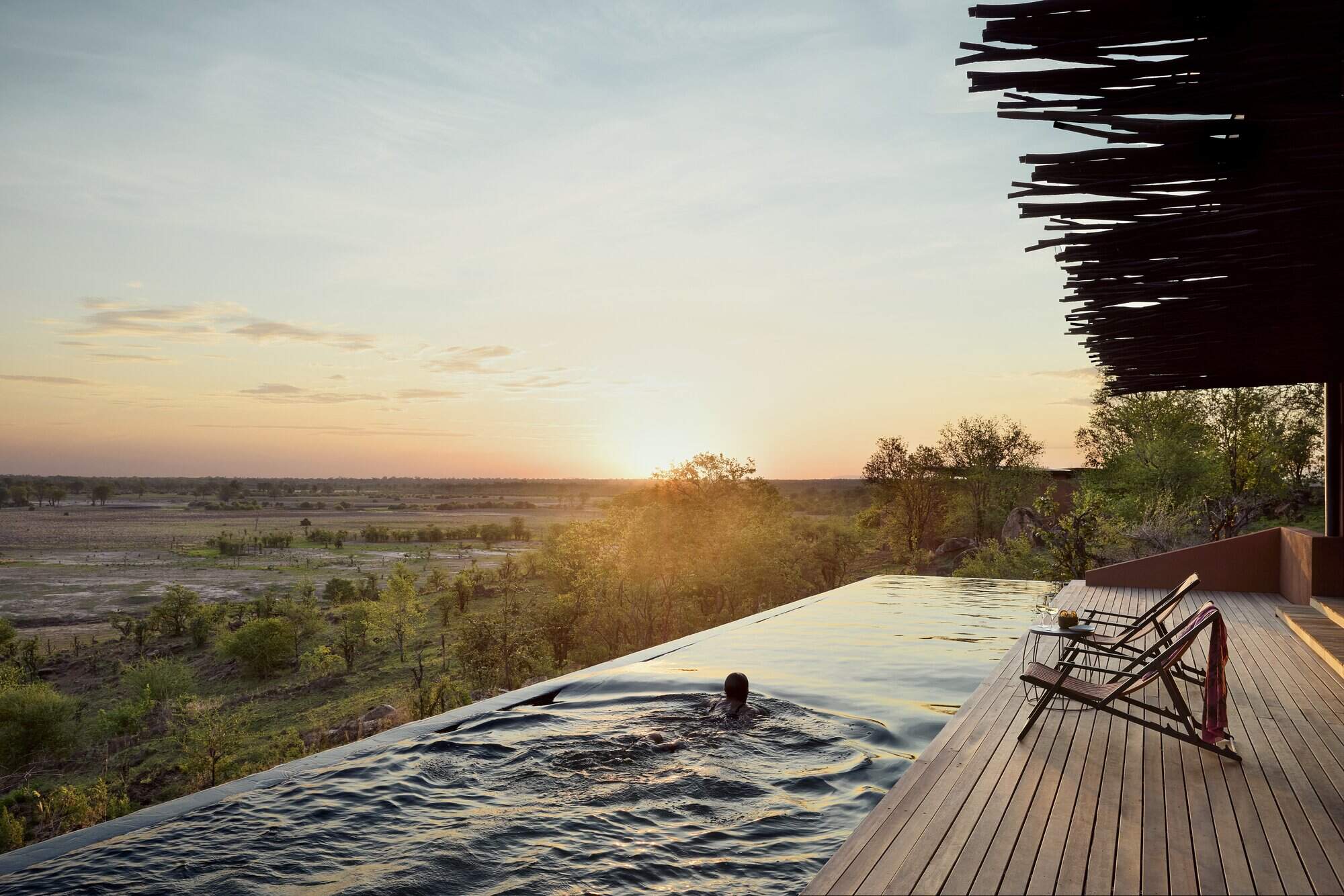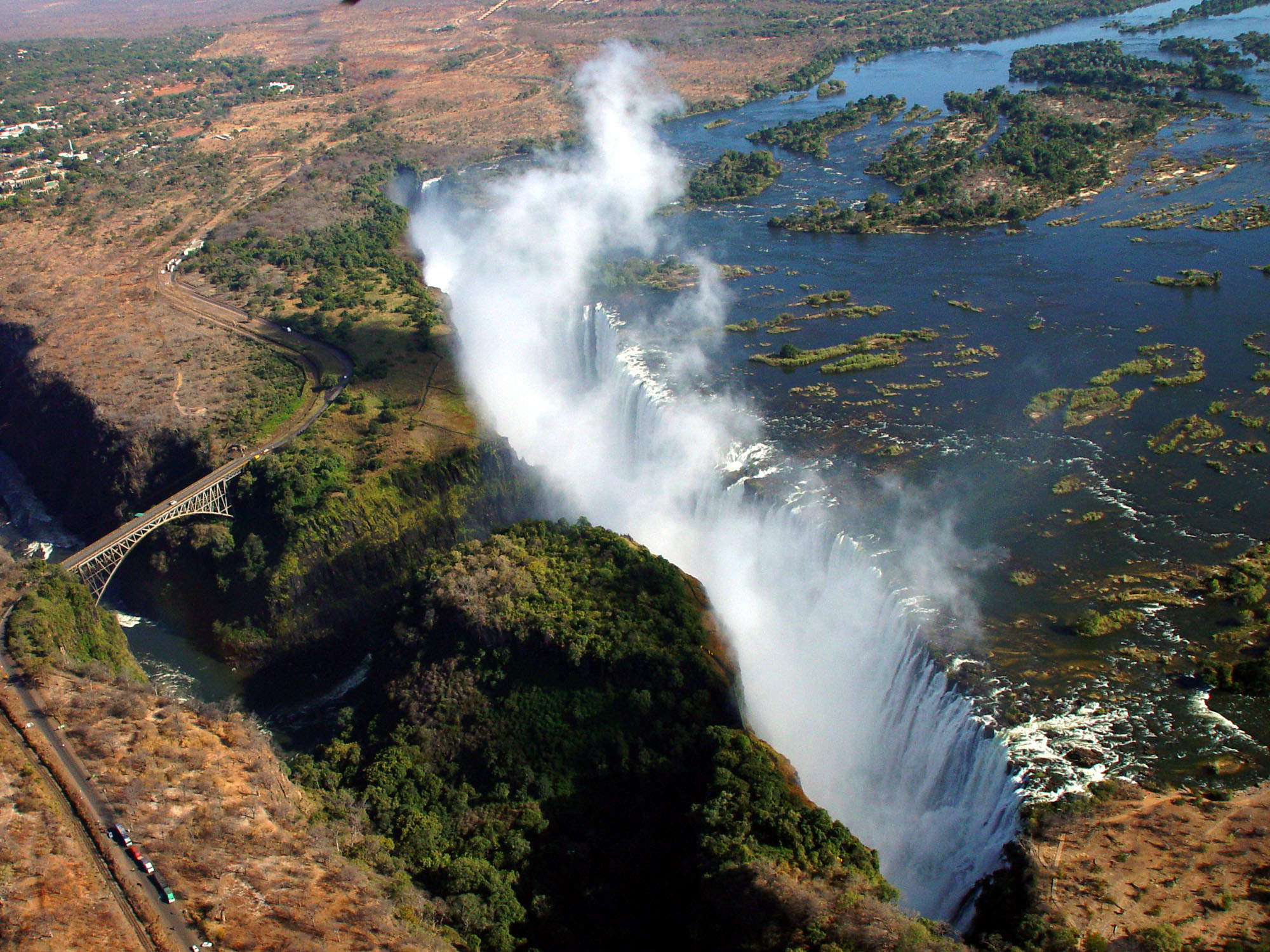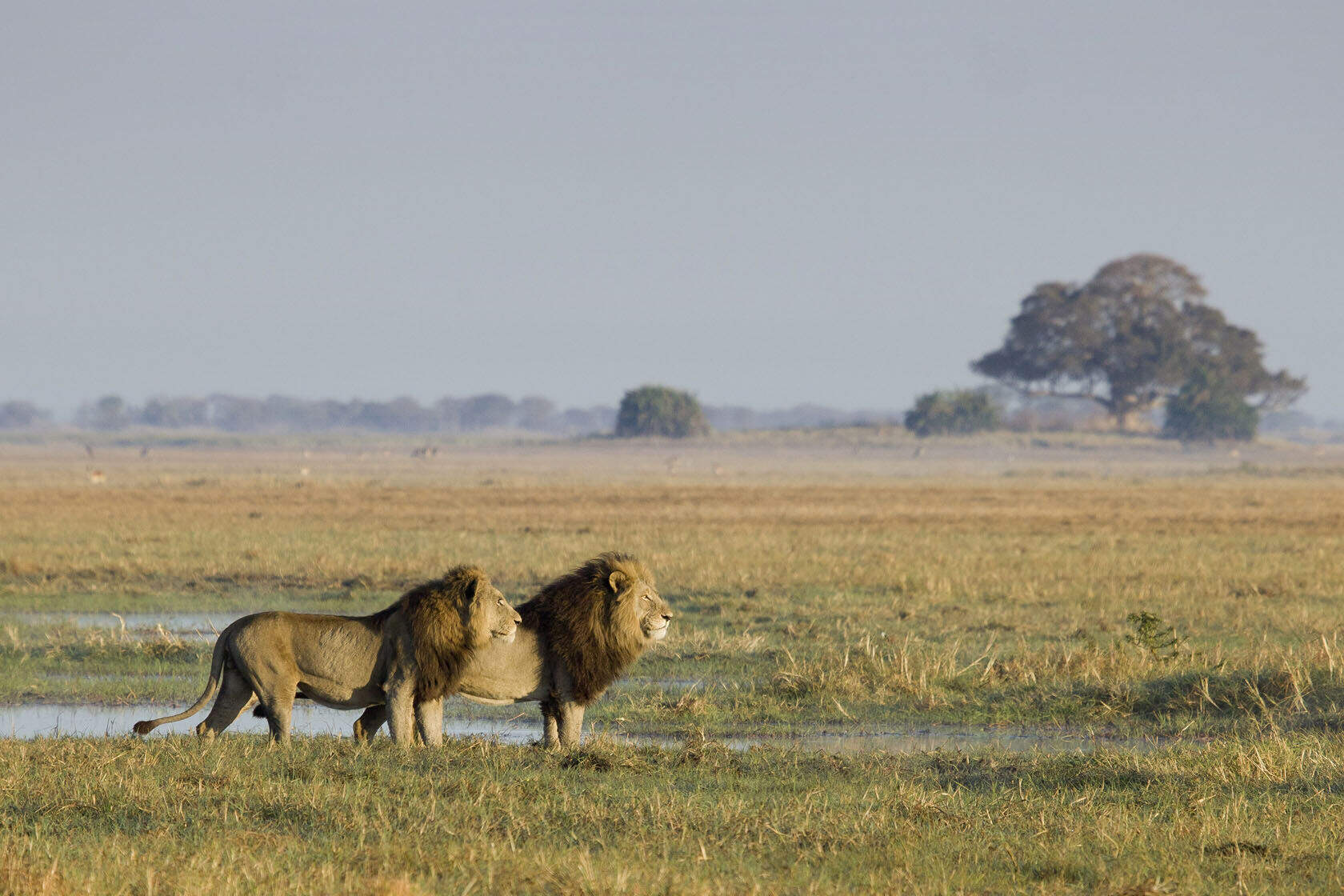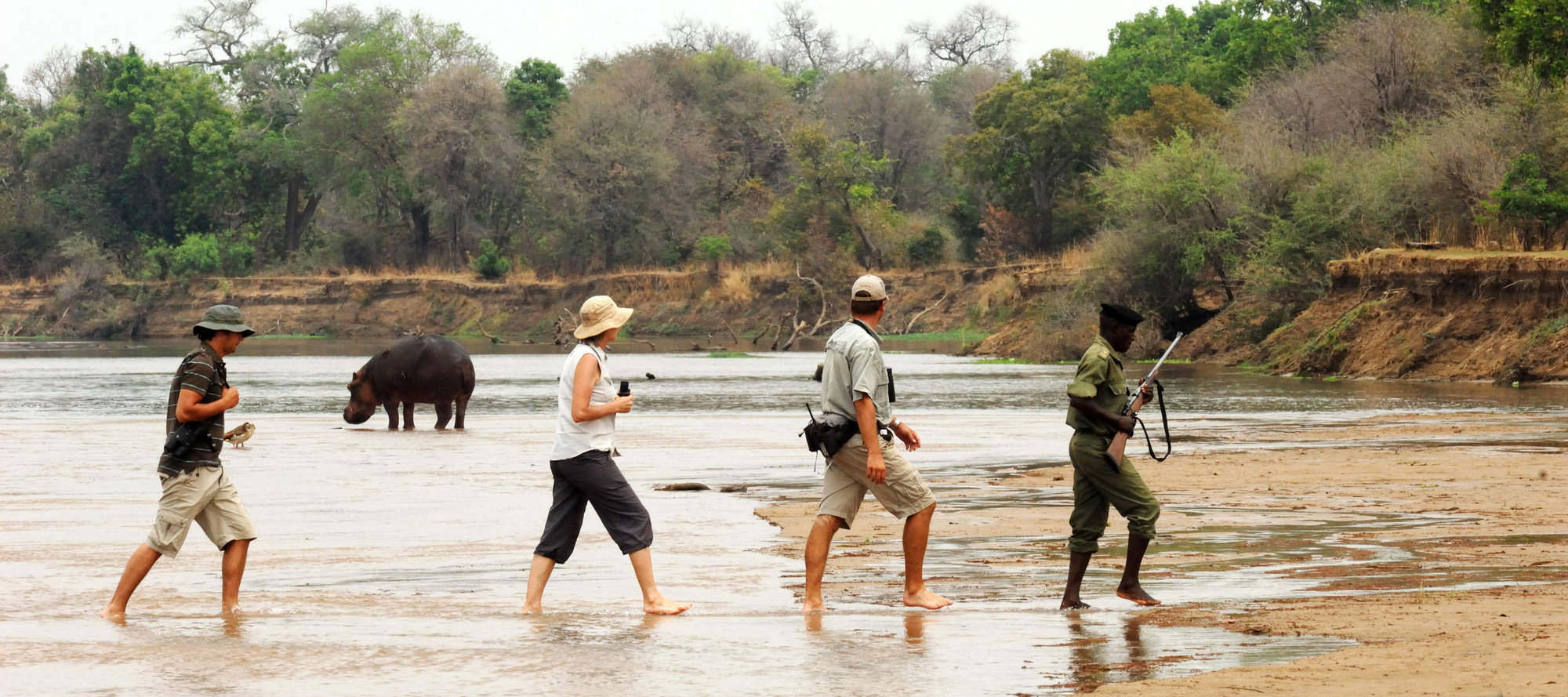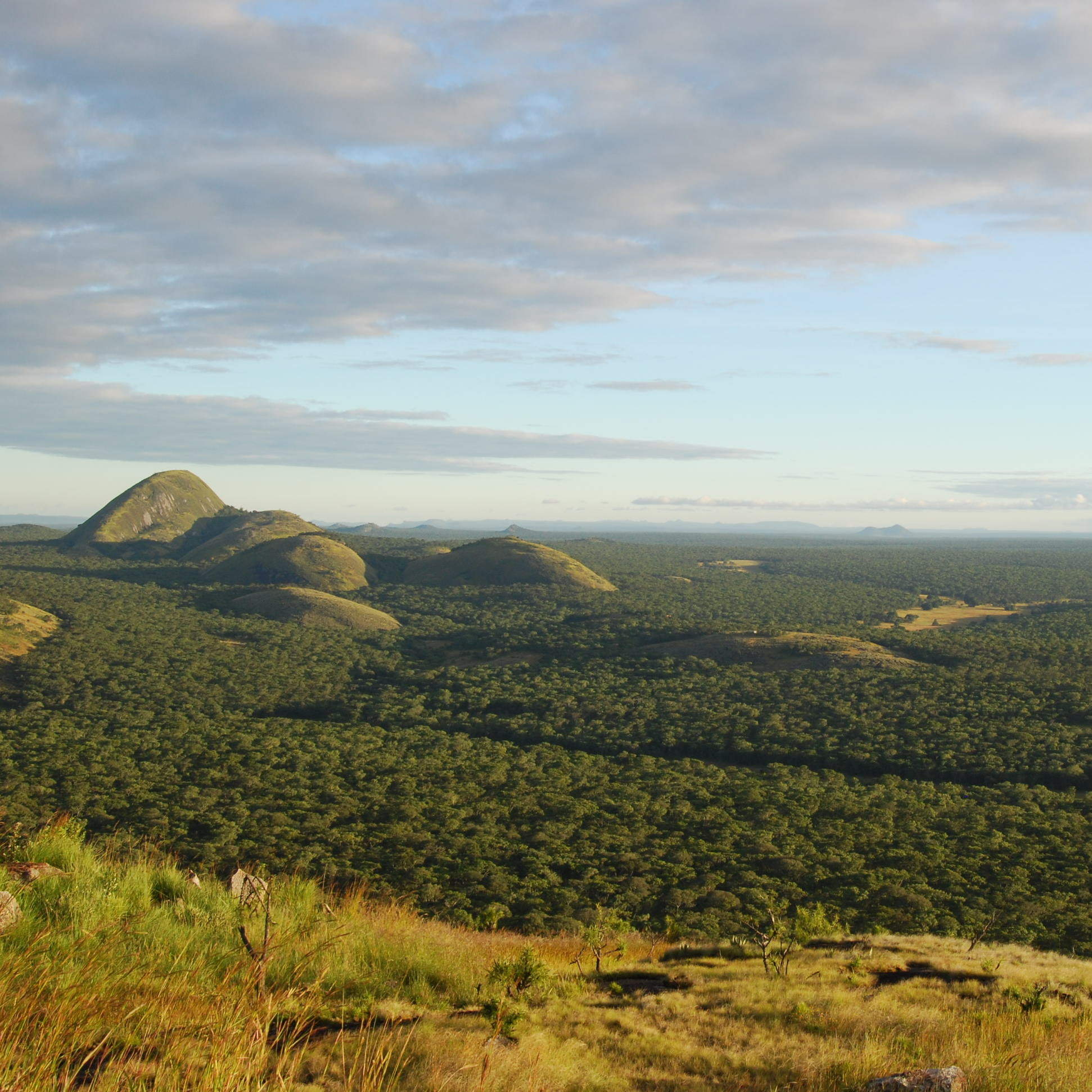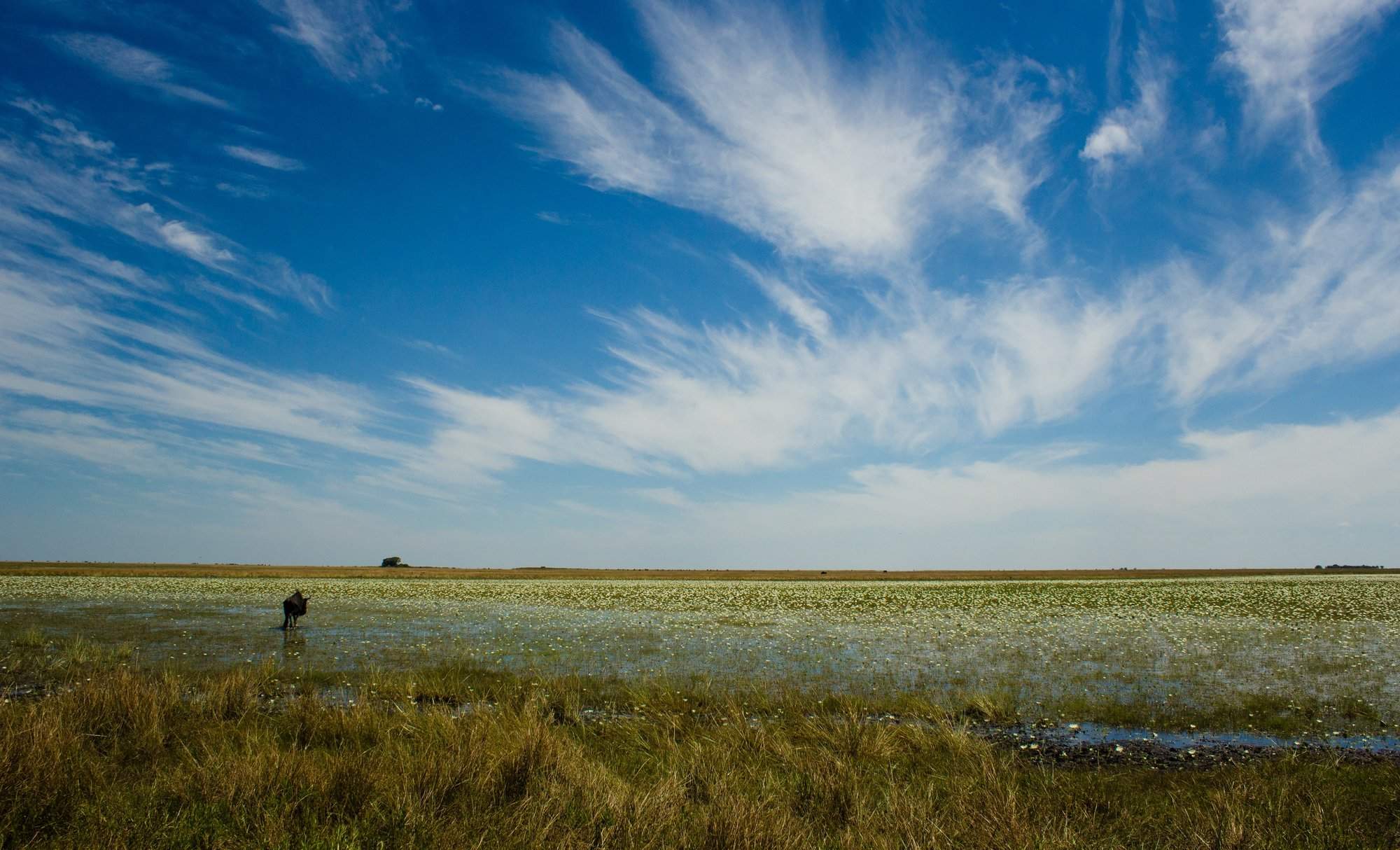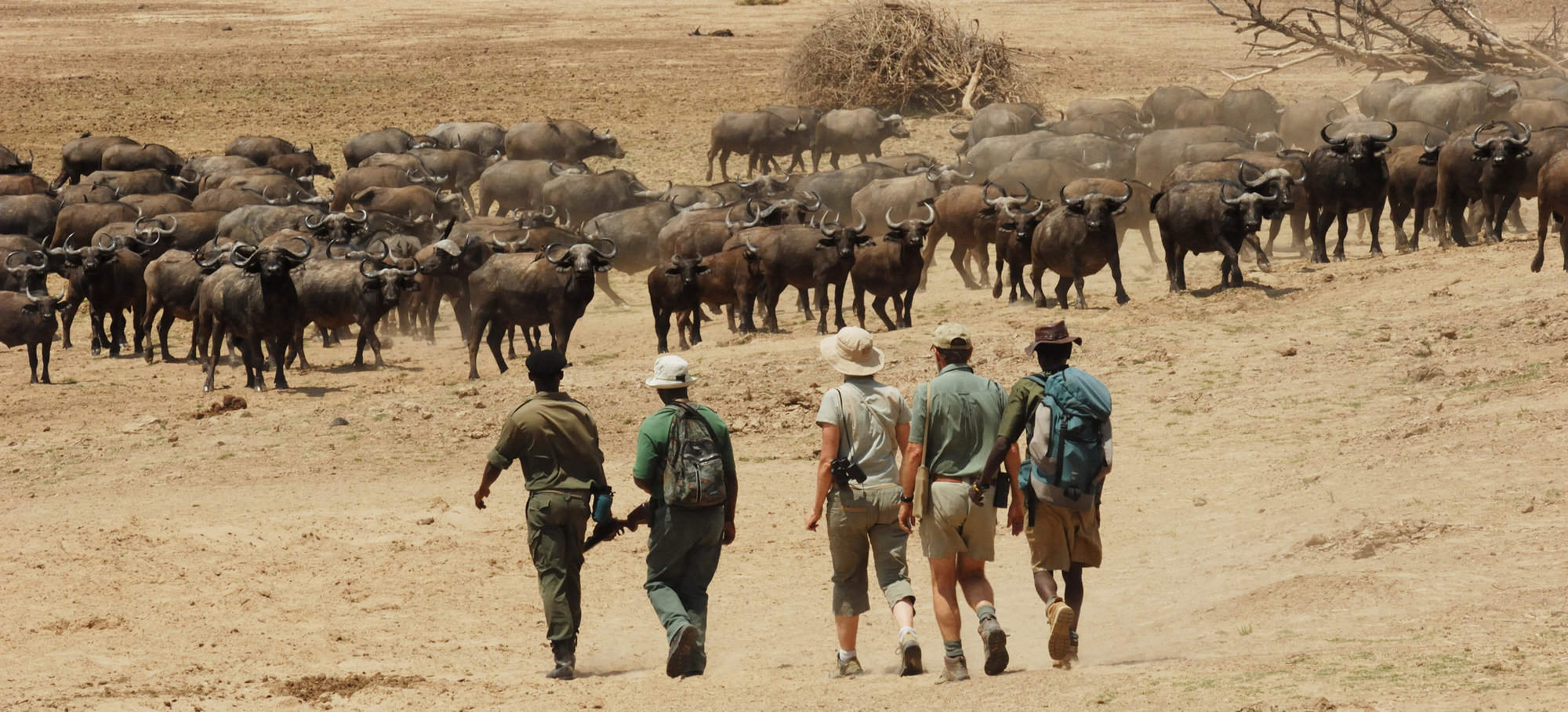Robin Pope Safaris Mobile Safari Camp: Our full report
Robin Pope Safaris offers the only real mobile-camping option in Zambia's South Luangwa National Park.
Staying in their simple, but comfortable, mobile camps gives you the opportunity to immerse yourself in the wilderness, connect with nature and discover the essence of this exceptional park entirely on foot, without resorting to a vehicle.At the heart of a unique walking safari operated by Robin Pope Safaris (RPS), these mobile camps are set up in the remote far north of the South Luangwa, in an area of varied terrain close to the languid Mupamadzi River.
Each camp is “pitched” by an experienced team from RPS only when travellers are staying, and taken down immediately after they leave, making their environmental footprint exceptionally small. Yet their three walk-in tents are far from basic: proper, comfortable twin beds are draped in attractive throws; rush mats cover the sand floors; folding chairs and tables ensure that you have somewhere to sit and read, with a drink at hand.
Step outside and you’ll find a bush shower under the shade of a tree, with hot water on request; even the long-drop toilet is transformed by a regal-looking throne. The long-drop toilet and bucket shower are communal, but always clean and with a system that works well!
Meals are all taken in the open air, perhaps in the cool shade of a tree or – after dark – under the stars. There are no fences, so you can expect to hear and even see animals in camp, especially at night, when a national park scout will remain on watch throughout.
The camps themselves form part of an intimate seven-day set-departure itinerary , with a maximum of six people, led throughout by one highly trained and exceptionally knowledgeable guide. Each itinerary starts and ends at one of RPS’ permanent camps on the Luangwa River, with the central five days focused on the mobile camps.
Key to the appeal of these mobile camps is their wilderness setting, some 4–5 hours’ drive from RPS’ permanent camps within the park, well away from game-drive vehicles and in an area where the wildlife is not used to the presence of humans.
Walking in this environment – the raison d’être of the camps – can be truly thrilling for the adventurous-minded traveller. During the day, you'll walk with experienced guides, armed spotters and a “tea-bearer” – a member of the camp's staff who acts as another experienced pair of eyes, whilst carrying vital supplies of tea, coffee, cold drinks and delicious cakes for refreshment stops along the way. On the days when you change camps, the rest of the staff move on ahead to set up the camp for your arrival, transporting your luggage so that you are carrying just your camera and binoculars.
Typically you’ll follow the Mupamadzi River, sometimes fording its shallow waters – a delicious way to cool off as the temperature rises. Distances vary from 3km to 10km, but each walk will be at a leisurely pace, stopping frequently to watch and listen. Lunch is usually in camp before the second walk of the day, when the sun is losing its heat, then you’ll return to camp to freshen up in time to mull over the day’s adventures during dinner around the campfire.
Staying at these mobile camps during a walking safari highlights the African bush at its best: a live, sharp, spine-tingling experience that's hard to beat and very addictive. Be careful though: watching game from a vehicle may never be the same again!
Walking Safaris
Walking in the bush is totally different to game viewing from a vehicle – and it's not for everyone. If you want to “tick off” big-game animals, photograph them from close quarters and swiftly go from one large herd of game to the other, then walking is not for you.You cannot approach animals as closely, or as easily, on foot as you can in a vehicle – but we guarantee you will learn more. You may start off a little sleepy from your early start, but you'll soon be on high alert. There are no noises except you and the wildlife, so everything you hear must be an animal, a bird, or an insect. With time, patience and a good guide, you can learn to interpret the sounds and secrets of the bush. You'll smell the presence of elephants, perhaps follow the honey-guide bird, and learn about animals from their spoor.
A morning's walk could be anything from 3km to 10km, and more like a nature ramble than a strenuous hike. Your guide might lead you to follow fresh tracks, or to sit under a tree to watch elephants bathing – deciding with the group at the time what looks most promising. With such small groups, these walks are always flexible; there are seldom pre-arranged routes or fixed plans.
If you find the prospect of walking in the bush a little daunting, that's a good sign. A healthy respect for wildlife is vital. Animals can be unpredictable and, occasionally, dangerous. However, the expert level of guiding on all these trips should reassure you. The Luangwa Valley has become the centre for walking safaris because of its stringent tests for guides, and the park rules that dictate that an armed game scout and a guide must accompany every group. It's one of the safest places to walk in Africa.
If you like the idea of fly-camping, but want a much shorter experience of this kind of trip, then consider slotting a night or two at an RPS Bushcamp into your itinerary.
Our view
Staying in RPS mobile safari camps as part of a walking safari is a brilliant way to experience the wilderness of the South Luangwa. Purely walking safaris don't suit everyone, so if luxury and four walls are a priority, it might be worth looking at some of our permanent tented camps in the national park. However, if you are looking for adventure in remote, untouched areas of the park, sleeping out under the stars, with no vehicles in sight, we would highly recommend this option.
Geographics
- Location
- South Luangwa National Park, Zambia
- Ideal length of stay
- Please note that these trips run on set-date departures lasting either seven or nine nights.
- Accessible by
- Fly-and-Transfer
Food & drink
- Usual board basis
- Full Board & Activities
- Dining style
- Group Meals
- Dining locations
- Outdoor Dining
- Drinks included
- Soft drinks, house wine and local spirits are included in the rates.
Fine wines, champagne and imported spirits and liqueurs would need to be requested prior to the trip, and will be charged as extras which can be paid at Tena Tena or Nsefu at the end of your mobile safari.
Special interests
- Solo Travel
- Staying at an RPS mobile safari camp, as part of a walking safari, is a very social experience. With busy days, groups or no more than six like-minded travellers and no single-person supplements, these trips are perfect for solo travellers.
- See ideas for Solo Travel in Zambia
- Birdwatching
- South Luangwa’s birding is varied and the guides on these mobile safaris are often "best in class", so you can expect them to be very knowledgeable about the birds, the plants, the animals, and almost everything else in the ecosystem.
- See ideas for Birdwatching in Zambia
- Walking safaris
- Photographic walking safaris were pioneered in Zambia’s Luangwa Valley – where Robin Pope’s operation is la crème de la crème. It’s a trip for purists, who can expect great guiding and like-minded company from other enthusiasts of bush walking.
- See ideas for Walking safaris in Zambia
- Wildlife safaris
- Immersed in nature, this temporary mobile walking camp offers the ultimate in a truly remote safari – a time to connect with the bush and the wildlife in one of Africa’s top safari areas, by simply walking around with an expert guide and naturalist.
- See ideas for Wildlife safaris in Zambia
- Walking
- The main activity and key focus of this mobile camp is walking safaris. More an extended nature ramble than a route march or a gruelling hike, they'll stop to marvel at creatures great and small in the context of their natural environment.
- See ideas for Walking in Zambia
Children
- Attitude towards children
- This mobile safari is better suited to adults given the remote nature of the trip.
- Property’s age restrictions
- Children under 16 are not permitted on the mobile walking safari.
- Equipment
- None.
- Generally recommended for children
- No
Our travellers’ wildlife sightings from Robin Pope mobile
Since mid-2018, many of our travellers who stayed at Robin Pope Safaris Mobile Safari Camp have kindly recorded their wildlife sightings and shared them with us. The results are below. Click an animal to see more, and here to see more on our methodology.

100% success

100% success

100% success

100% success

100% success

100% success

100% success

80% success

80% success

75% success

67% success

60% success

50% success

0% success

0% success
Communications
- Power supply notes
- The camp has a solar powered battery in the storage truck, with international and USB charging points.
- Communications
- Camp staff and your guide can contact RPS head office when necessary.
- TV & radio
- None
- Water supply
- Transported in
Health & safety
- Malarial protection recommended
- Yes
- Medical care
- The guides and camp manager are first aid trained, and first aid kits are kept in camp and taken out on each walk.
- Dangerous animals
- High Risk
- Security measures
- All walks are accompanied by an armed scout, and a national-park scout is on duty throughout the night.
- Fire safety
- A fire extinguisher is located in the camp kitchen, and fire buckets are placed round camp.
Activities
4WD Safari
Birdwatching
Cultural excursion
Fly-camping
Guided walking safari
Night drive
Extras
- Disabled access
- Not Possible
- Laundry facilities
- Limited laundry facilities are available, clothes will be hand washed and line dried. Due to cultural reasons ladies underwear is excluded, but washing powder and water are available on request for guests wishing to wash their own.
- Accepted payment on location
- All meals and drinks are included, so no payments are necessary.
Other lodges in South Luangwa National Park
Alternative places to stay in this same area.

